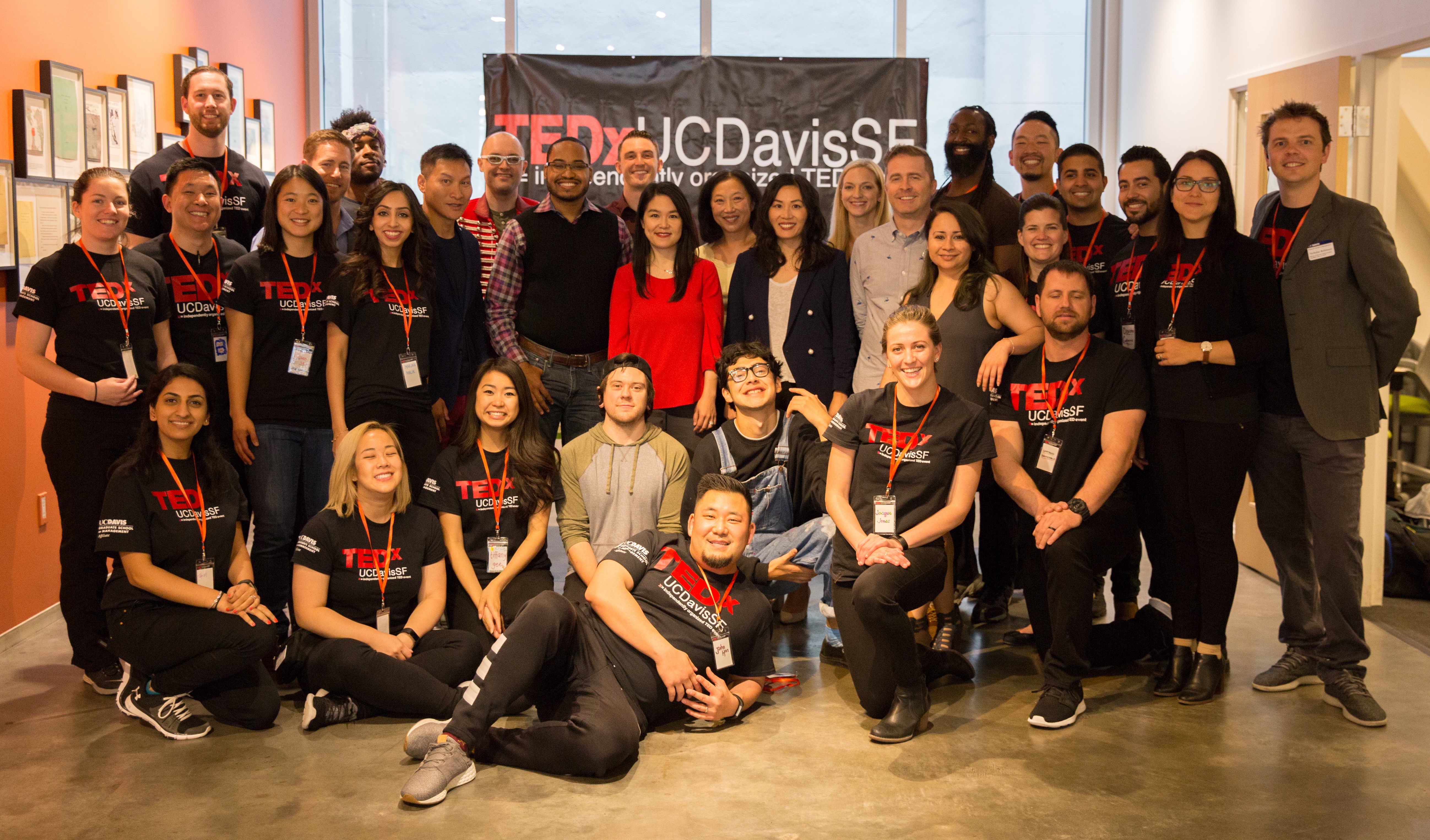
TEDxUCDavisSF — 2018 Movement
TEDxUCDavisSF — 2018 Movement
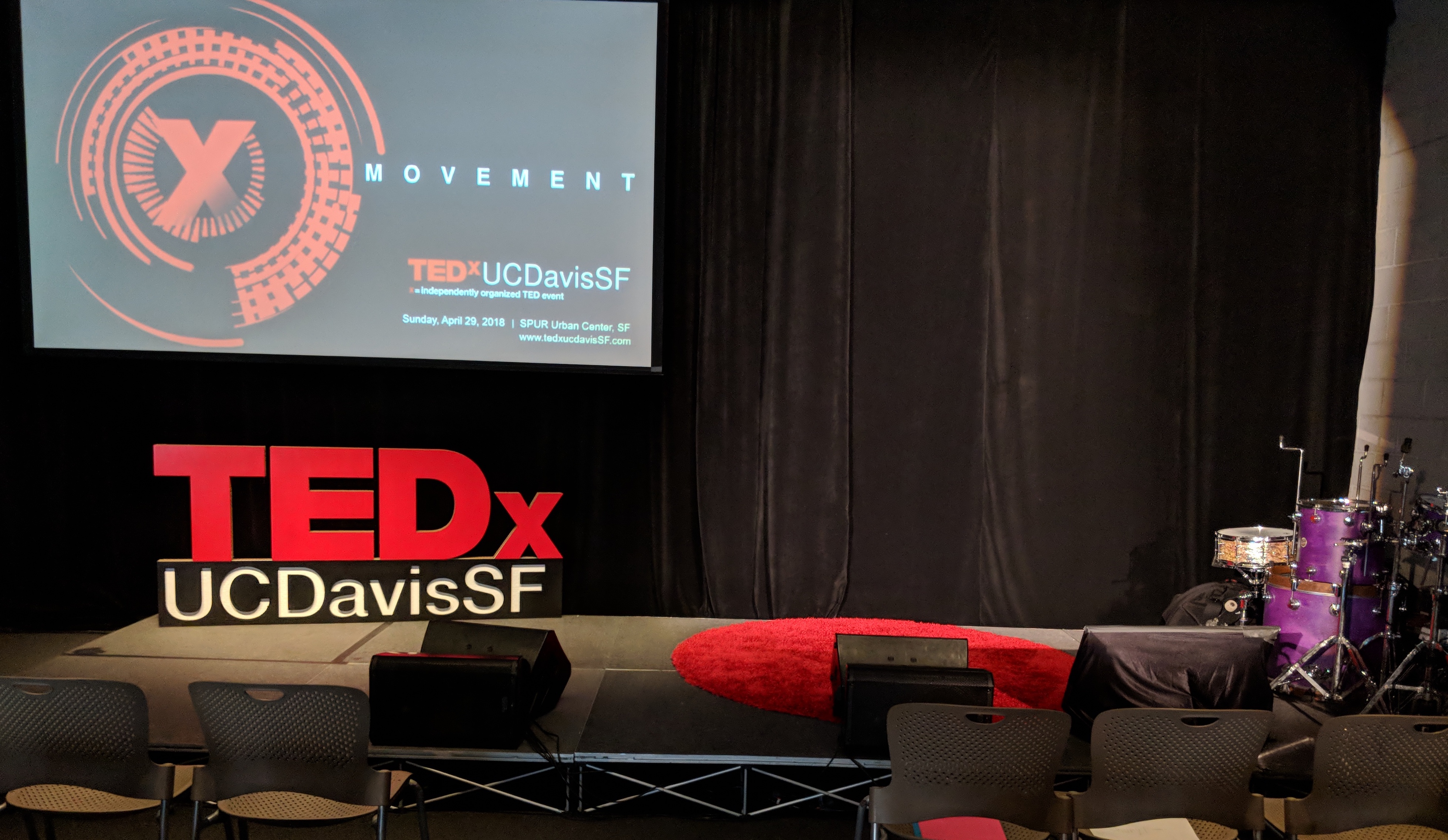
TEDxUCDavisSF stage at SPUR moments before the Movement event.
On April 29th, the 2018 TEDxUCDavisSF event themed “Movement” took place at SPUR Urban Center in San Francisco. TEDxUCDavisSF is a TEDx event organized by by the TEDxUCDavisSF team which consisted of both current UC Davis Graduate School of Management students and alums. The 2018 Movement event was the third TEDx event organized by the TEDxUCDavisSF team. The entire planning process from start to finish spanned more than 8 months.
The TEDxUCDavisSF team had one goal : to build a presence for the Graduate School of Management network with a TEDx event engaging industry experts and the Bay Area community.
And the fruits of our labor? Another sold out TEDxUCDavisSF event!
About Movement
This year, we picked “Movement” as the event theme because our team was inspired to explore ideas with the potential to transform lives and create movements.
After reviewing nearly 50 applications, we narrowed down to 13 talks by thought leaders in social justice, business, technology, and performing arts.
Below are highlights from the 2018 Movement event to tie you over until when the official TEDx videos are live.
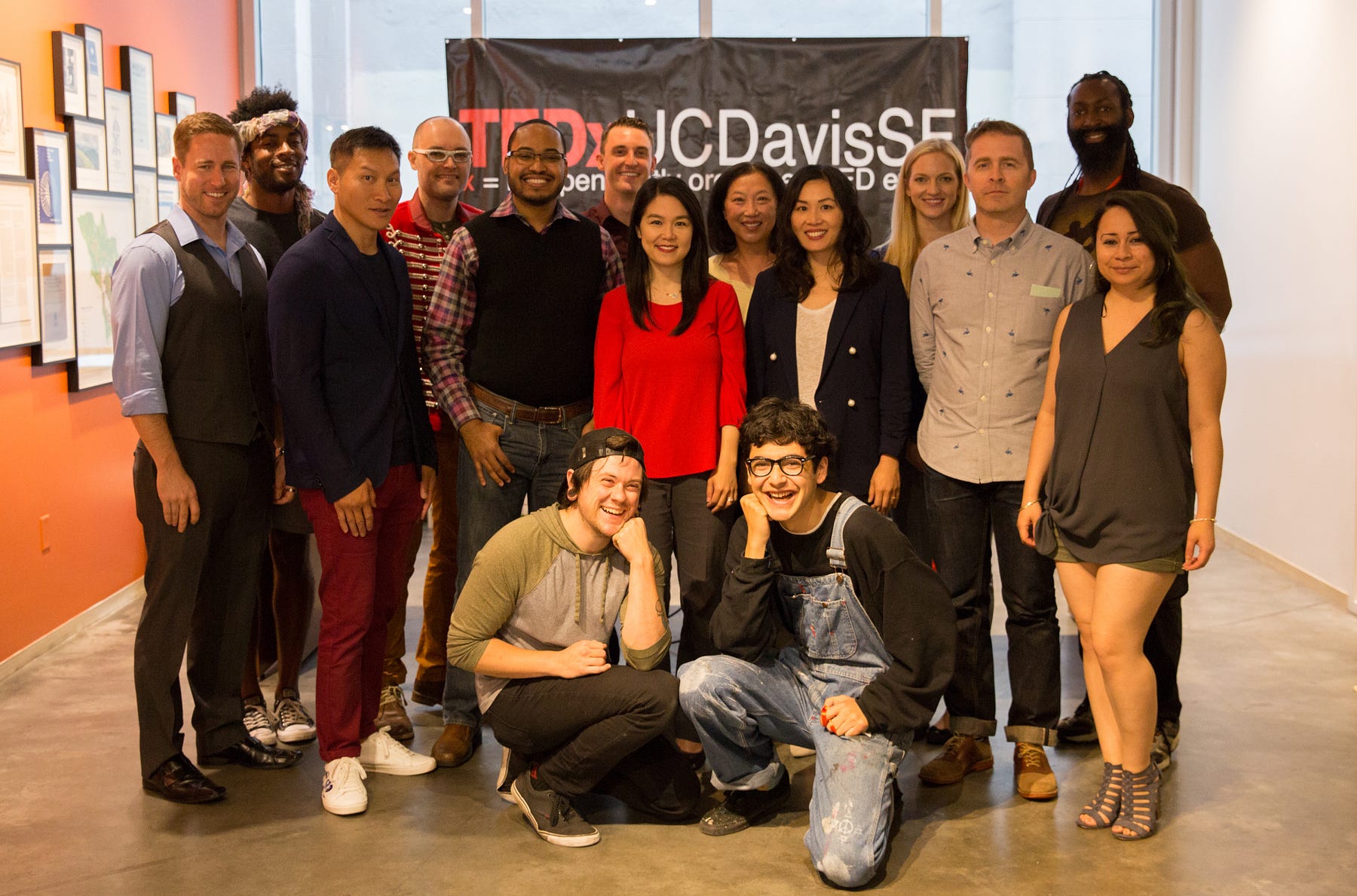
Speakers (Eddy Zheng, Sean Montgomery, Gina Dokko, Dante Love, Luke Guidici, Yardley Ip, Alex Weber, Kristin Fracchia, Ji Seon Song) and performers (Unlikely Heroes, Luke Brady) before going on stage!
13 Unique Movements
Gina Dokko
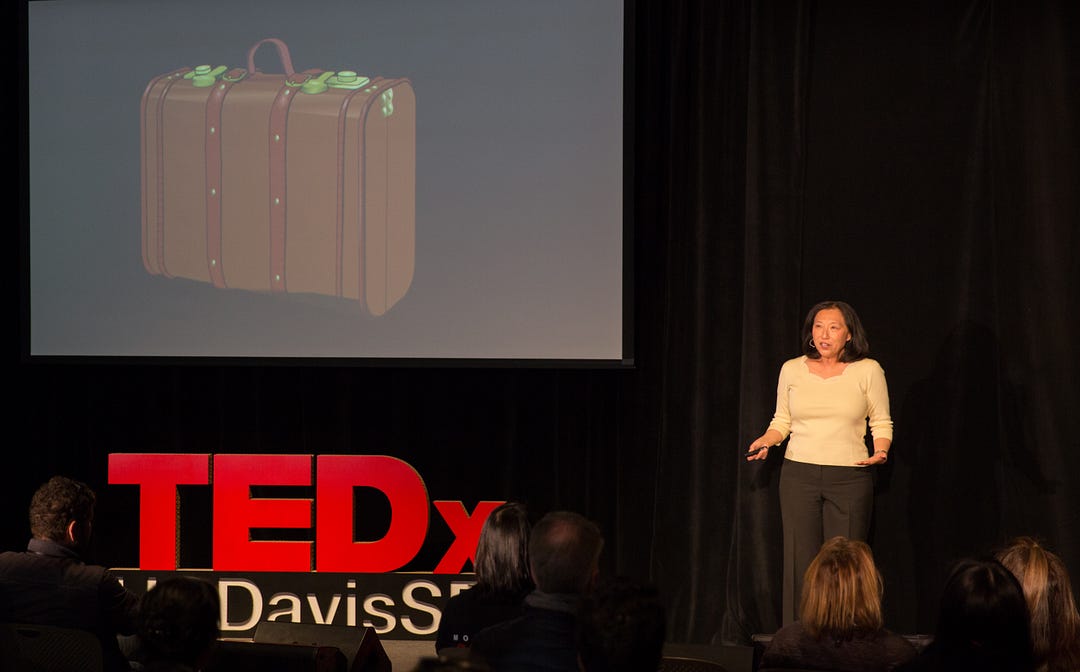
Gina Dokko on the “career baggage” professionals carry.
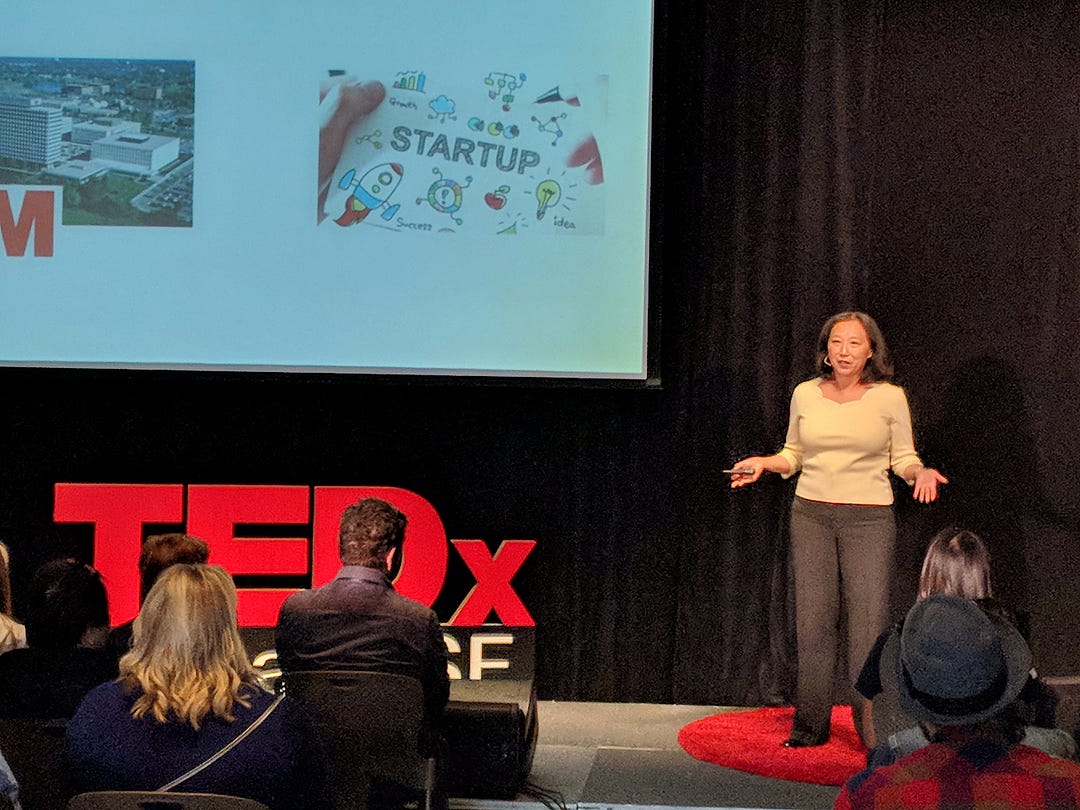
Gina Dokko sharing the challenges she faced in her own career transition before becoming a professor.
- According to Dokko, experienced folks sometimes stumble when transitioning into new roles because they can carry assumptions from old companies that no longer apply at the new companies. These assumptions are known as “career baggage” that can affect an individual’s career mobility.
- While “baggage” tends to have a negative connotation, it should really be thought of as a “toolkit accumulated from past experience, knowledge, and ways of thinking”.
- Although not every tool is needed for every job, Dokko advised it’s best to “be thoughtful about what your experiences have given you, and use them strategically to move toward your career aspirations.”
Sean Montgomery
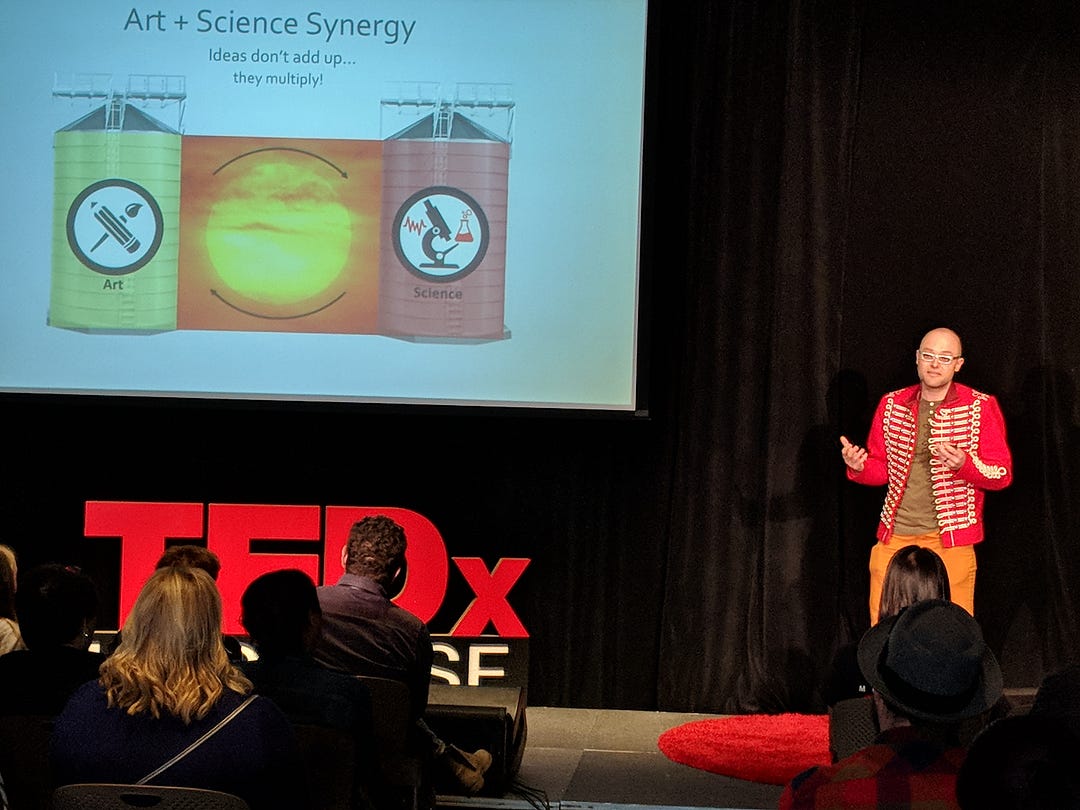
Ideas don’t add up, they multiply!
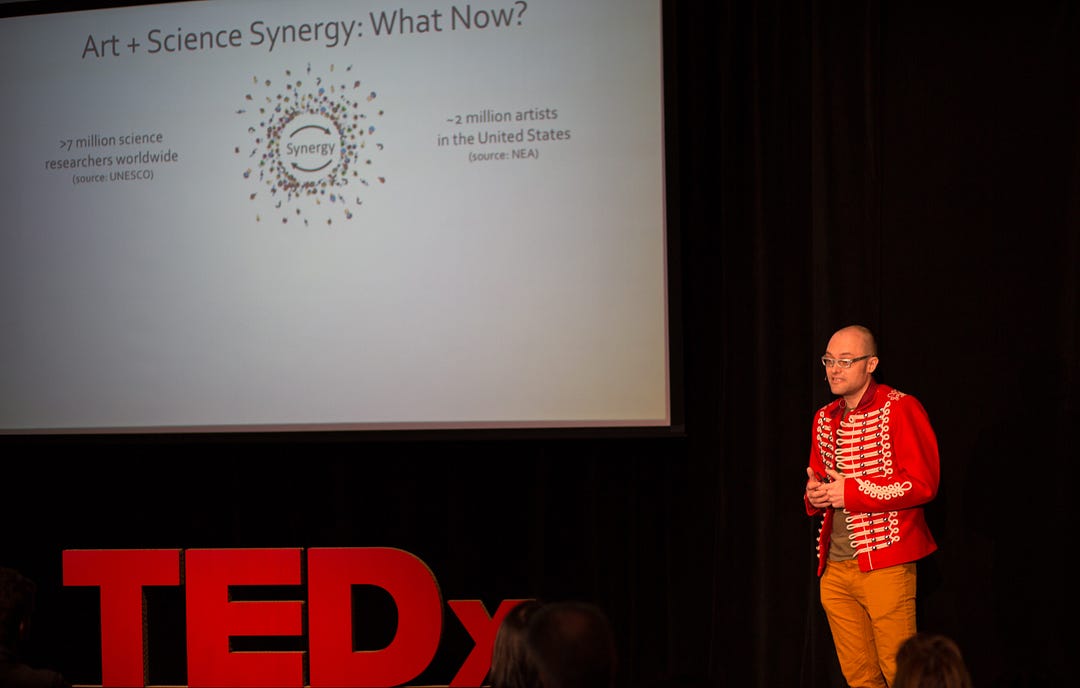
Sean Montgomery on what it means when art and science synergize.
- There is deep synergy between art and science. Similar to mixing two colors, say red and yellow, you end up with an array of colors, not just two. By taking a transdisciplinary approach to art and science, we can multiply the information and ideas and make the world a slightly better place.
- By pulling data directly from the scientific instruments and giving it to the public in a playful form, science is democratized. Together, we can see novel patterns in data, generate new ideas and energize public discourse. This process has the potential to feed back into science itself.
- Let’s create a movement of synergy between art and science that could perhaps ignite a generation of scientists and artists, change the way people understand the value of funding arts and scientific research, tip the scales of science literacy and save the world from cognitive decline and abuse of our most precious resources.
Kristin Fracchia
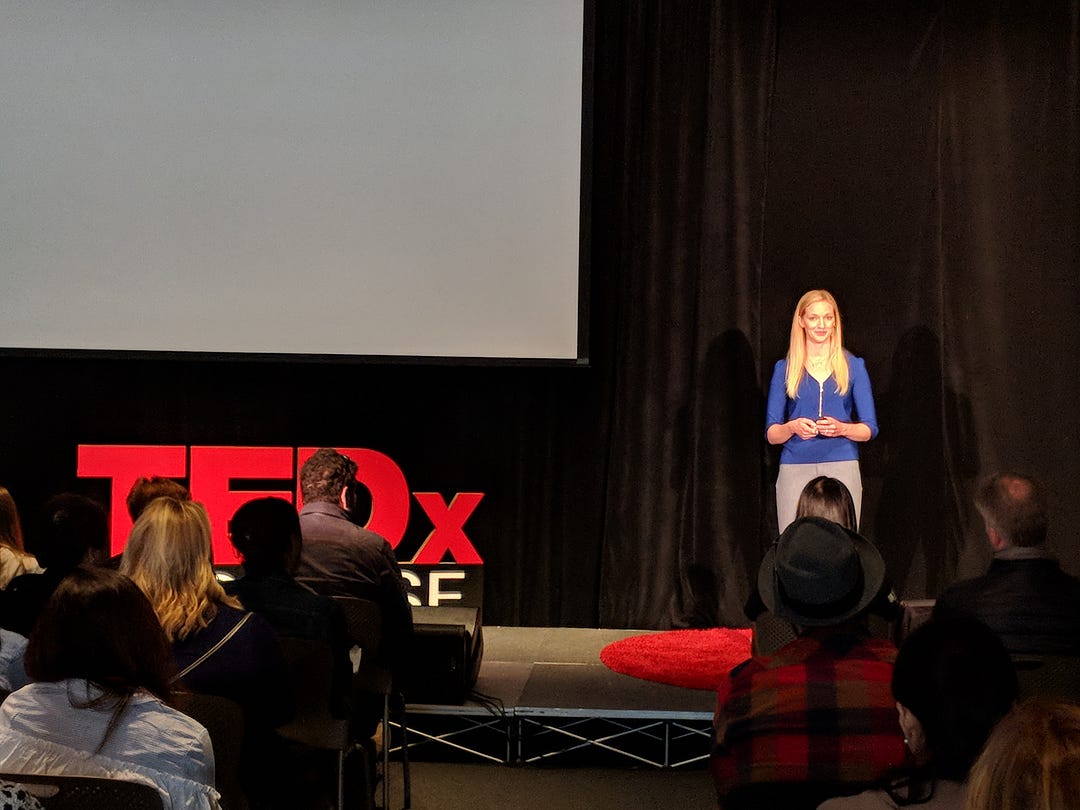
Kristin Fracchia on the life-changing impact one single moment can have.
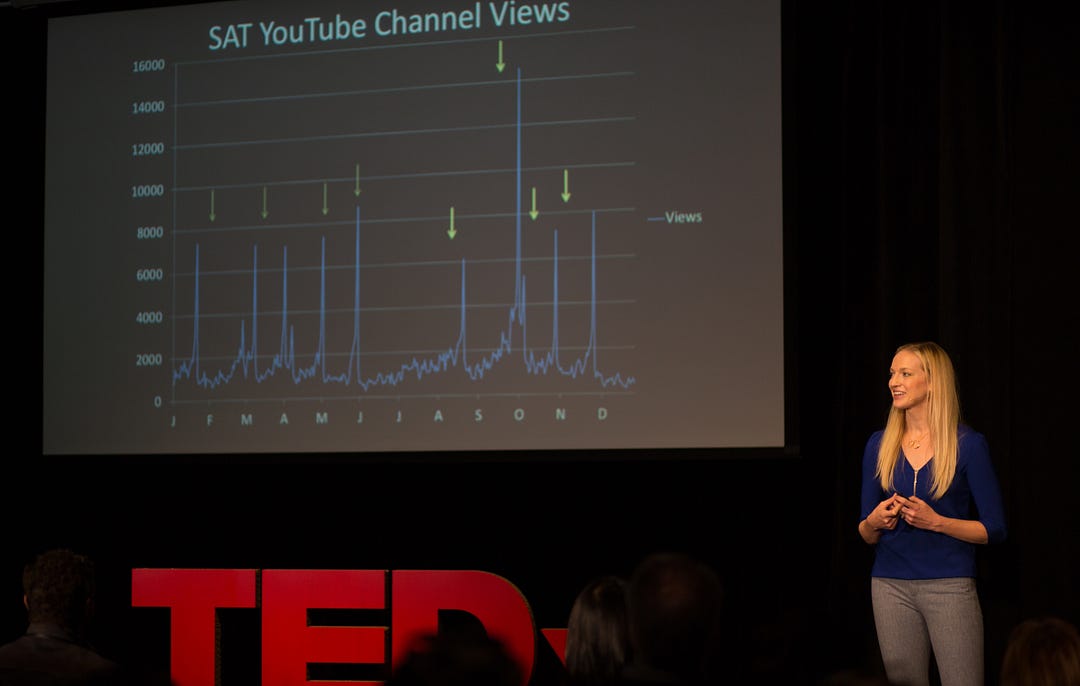
Guess what high school students do the night before taking the SAT?
- Using a term from internet culture “crowdsourcing” to encapsulate the idea of sharing the labor between a large community to achieve a cumulative result, crowdsourcing college admissions means meeting today’s young people where they are today — online — and finding better ways to help them navigate a perplexing road they haven’t traveled before.
- Internet can scale the distribution of previously insider information.
- I truly believe in the incredible impact that a wise and trusted mentor can have on a young person’s life.
- Most of us have access to the internet which can be tremendously helpful in scaling mentorship and sharing previously insider information to have a life-changing impact on students.
Eddy Zheng
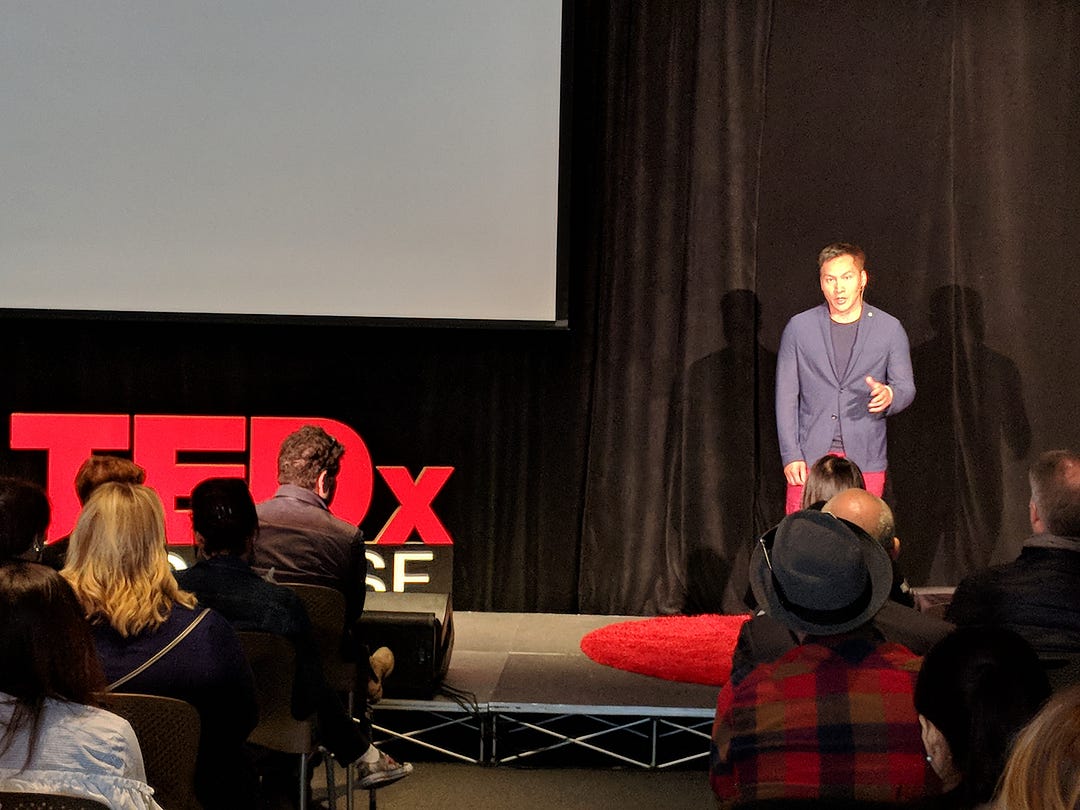
Eddy Zheng sharing his story and what led him to become a social justice advocate for Asian Pacific Immigrants.
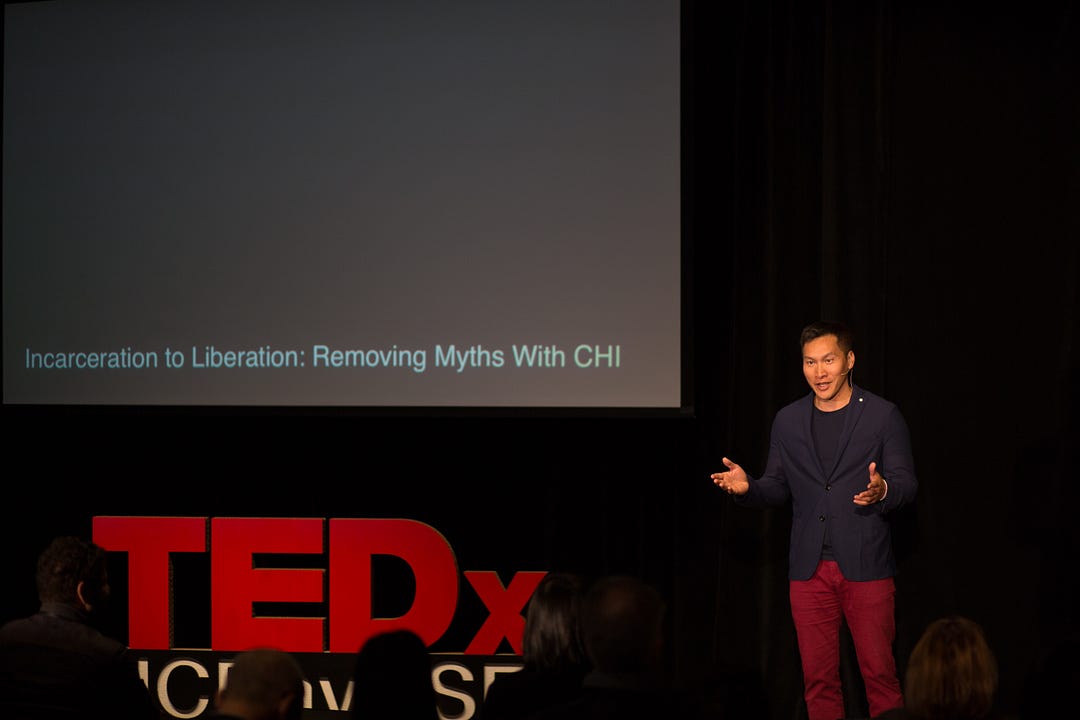
Know your CHI – culture, history, and identity.
- The Model Minority Myth is, in fact, a myth, and an obstacle to progress that should be removed. The Myth is not only wrong, it is also incomplete as it excludes many Southeast Asian groups and does not represent their stories.
- To remove the Model Minority Myth, we must understand our CHI — culture, history, and identity:
- Culture — Understand the richness of our culture and the culture of others to celebrate our commonalities and embrace our differences.
- History — Learning about history helps us appreciate the sacrifices and pride that many Asian Pacific Immigrants have in becoming successful.
- Identity — Understanding one’s identity provides value and solid grounding as a human being.
- C-H-I helps me build meaningful relationships with people and fight for racial inclusion and equity for all.
- We must be willing to engage in a personal revolution before we can embark in a collective revolution. Let’s move forward!
Unlikely Heroes
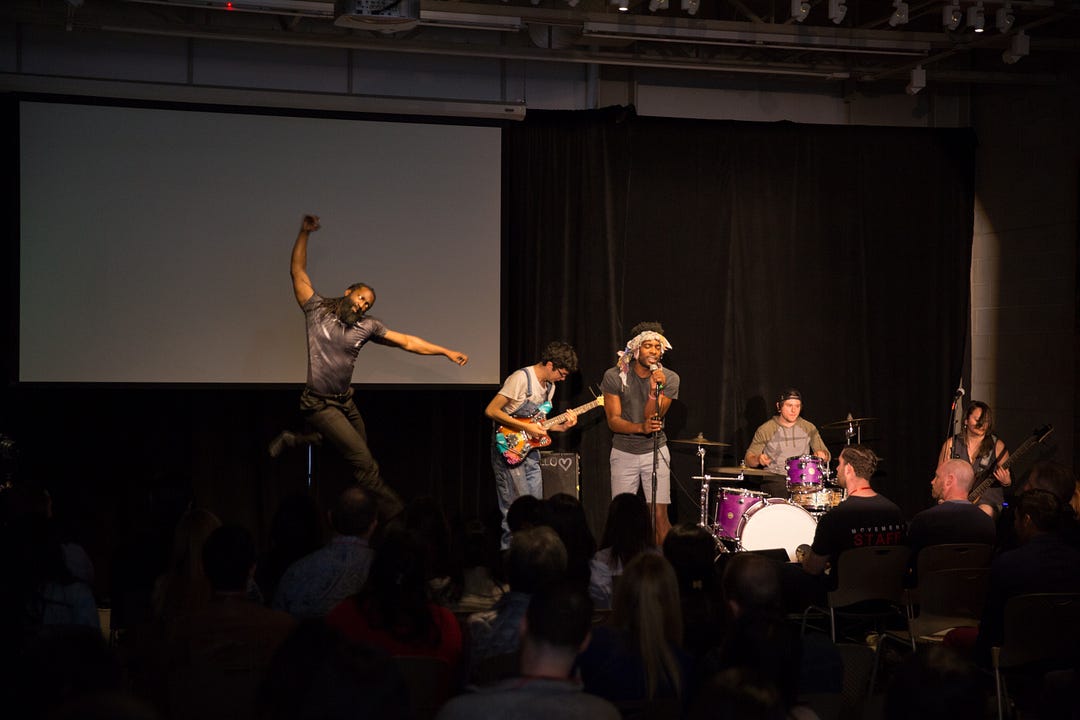
Speaker Antoine Hunter and performing artists from the Unlikely Heroes demonstrating the innate ability to create movements outside the boundary of music genre.
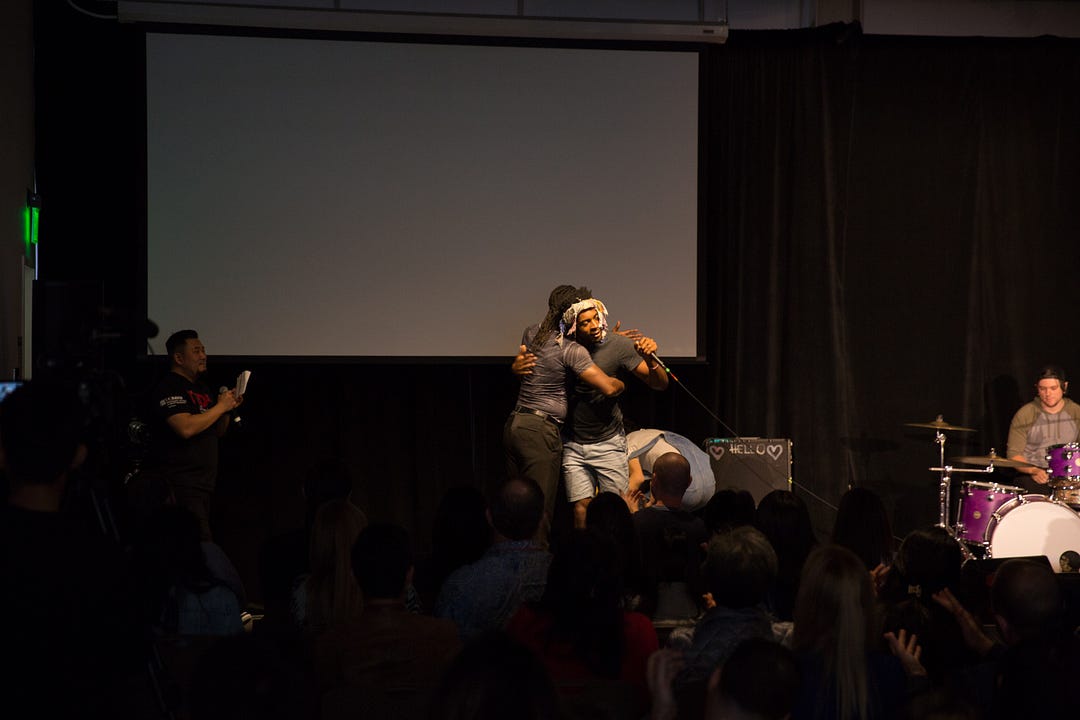
The exclusive performance between Antoine Hunter and Unlikely Heroes was absolutely amazing! Be sure to catch the video when it comes out!
Our ability to feel the music, the sounds and vibrations from the drums … is a beautiful thing in the sense that we can collaborate based on how we feel and not be constrained by the style or genre of music we choose…
— Unlikely Heroes on the exclusive collaboration with speaker Antoine Hunter
- Explore one’s inner feelings including fear can empower us to see the light at the end of the tunnel.
Yardley Ip
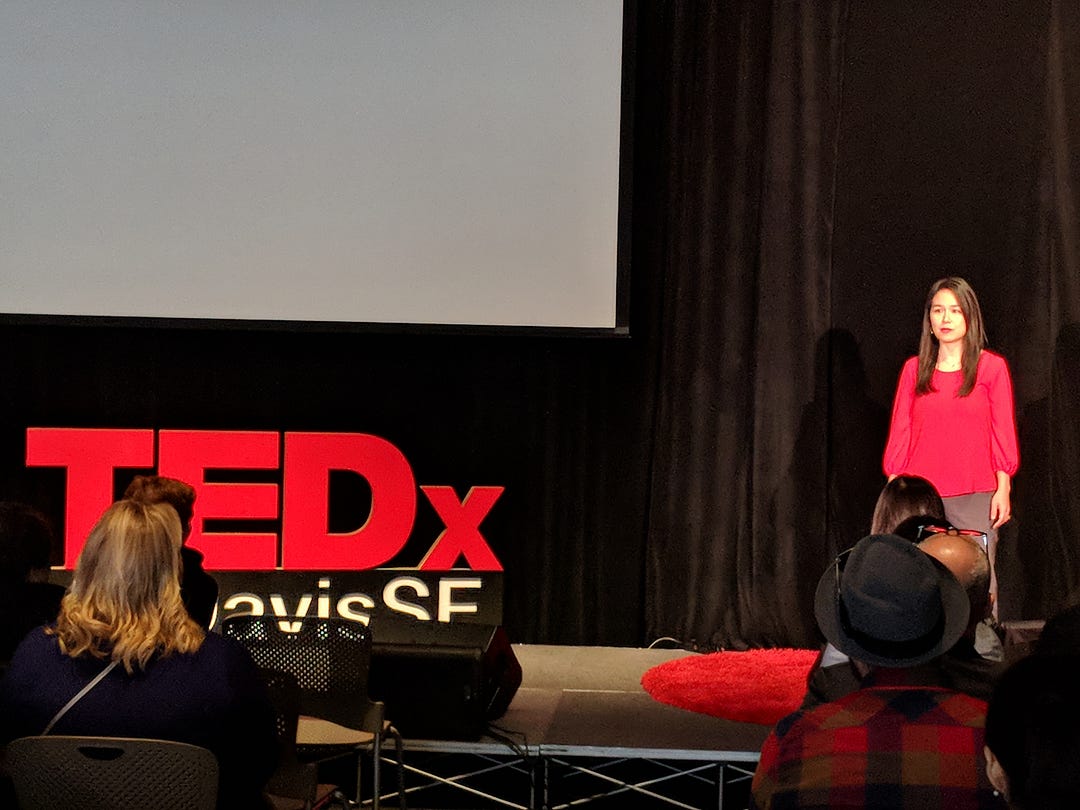
Yardley Ip on finding her first community at the math club because “every question has an answer…I didn’t have to know English”.
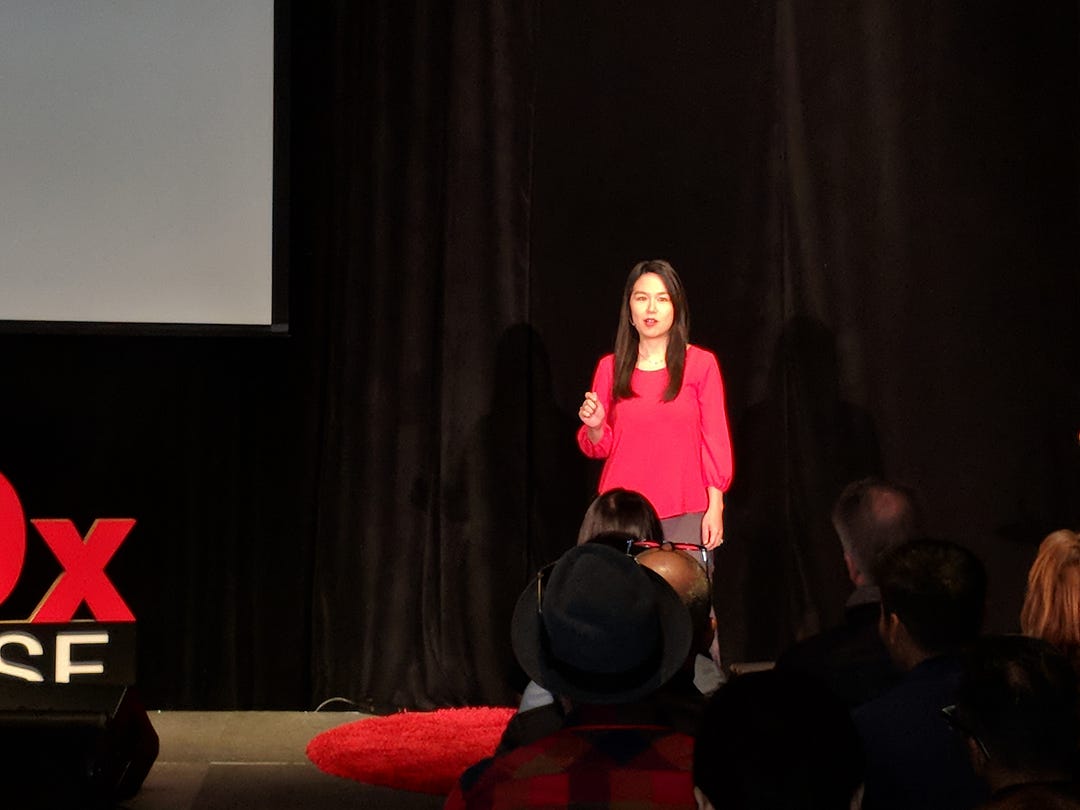
“I now have conviction that communities can be a driving force for change; that they are more than a group of people with similar interests and hobbies.”
- Communities graduated from a group of people with common interests to a group of people with a common mission to truly make an impact, to drive change, to make a movement.
- Is there that one idea that won’t leave your mind? … All it takes is to start is that one conversation, sharing that one idea with a friend, taking one leap of faith together, and making one step forward to forming a community.
- Be open and vulnerable to the possibilities. You may be surprised by how much you can do with the strength and determination of a community. Together, you can make a movement that makes a tremendous impact in the world.
Alex Weber
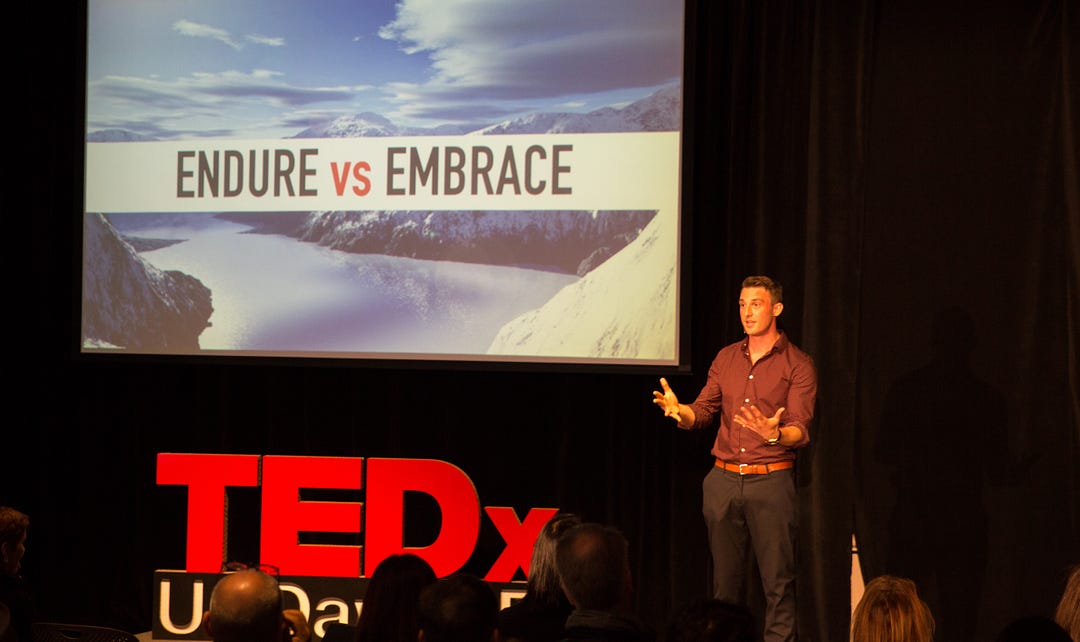
Alex Weber on why we should embrace “sucking”.
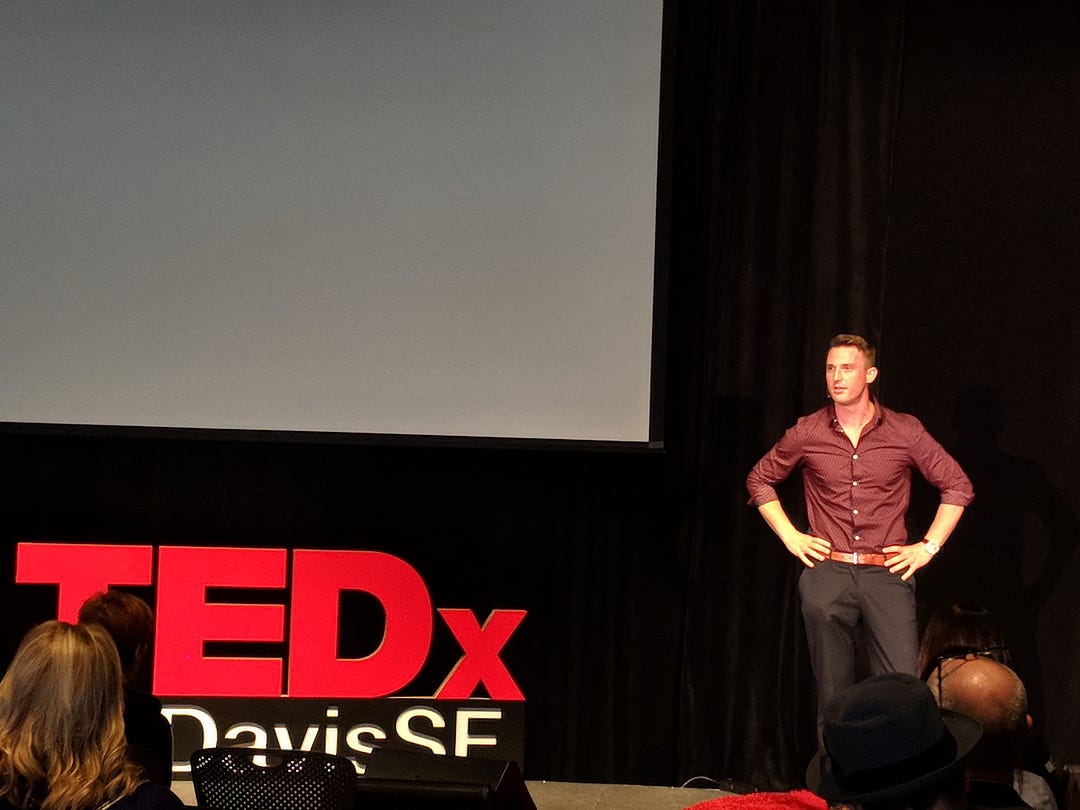
“Sucking is a visceral experience. It is the actual moments experiencing…doubt and discomfort and fear and emotional pain… physical pain and judgement by others and judgement by ourselves.”
- It is easy to understand failing mentally — but sucking is a much more visceral experience. It is the actual moments experiencing frustration and doubt and discomfort and fear and emotional pain, and physical pain and judgement by others and judgement by ourselves.
- When we were little we didn’t know what it meant to “suck”. We had fun. We kept trying and we learned and got better. As adults we think we can’t suck, so when we do we beat ourselves up. The experience of sucking can make us quit and create barriers so we don’t ever have to face it again.
- I got sick of saying “I’ve always wanted to.” I realized I can either
1) Do it, or
2) Regret it, and come to terms with that. And you know what, that building-regret was way more painful than anything sucking could ever bring. I learned it is OKAY to suck in doing something that we really WANT. And if we want to do something, we gotta just start.
- Fear can make us believe we can’t do it. But just because we haven’t done it yet doesn’t mean you can’t do it.
- Life is moments and “sucking” is one of those moments.
David Lee
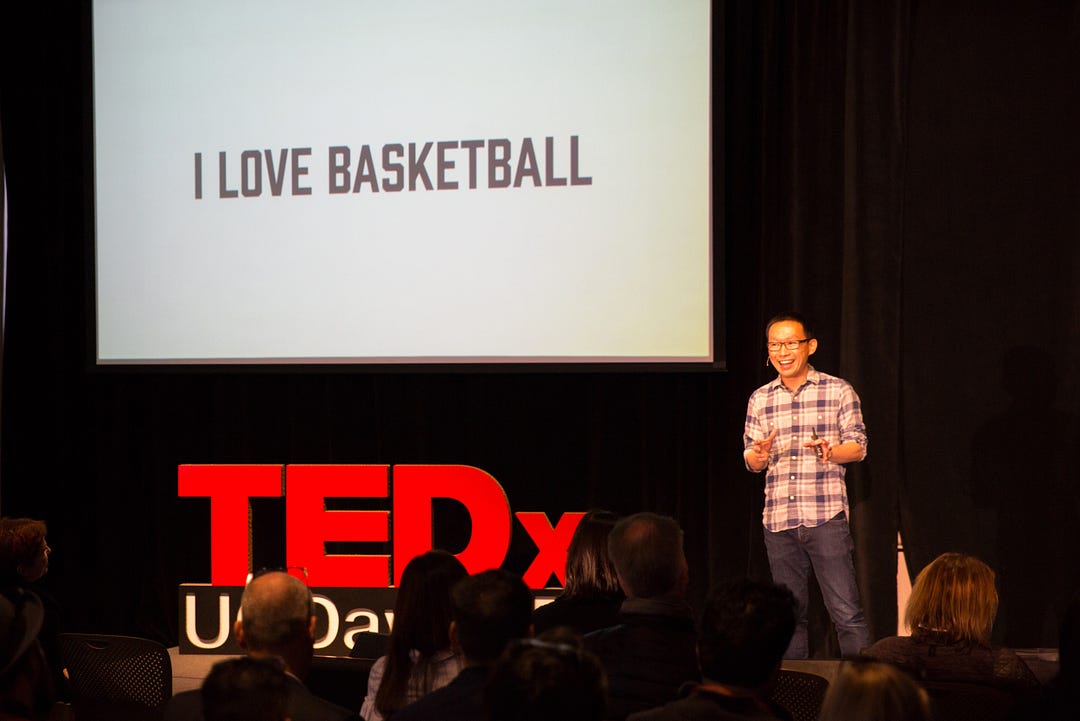
David Lee on leaving Apple after his 8 year tenure with no concrete plans for his next steps.
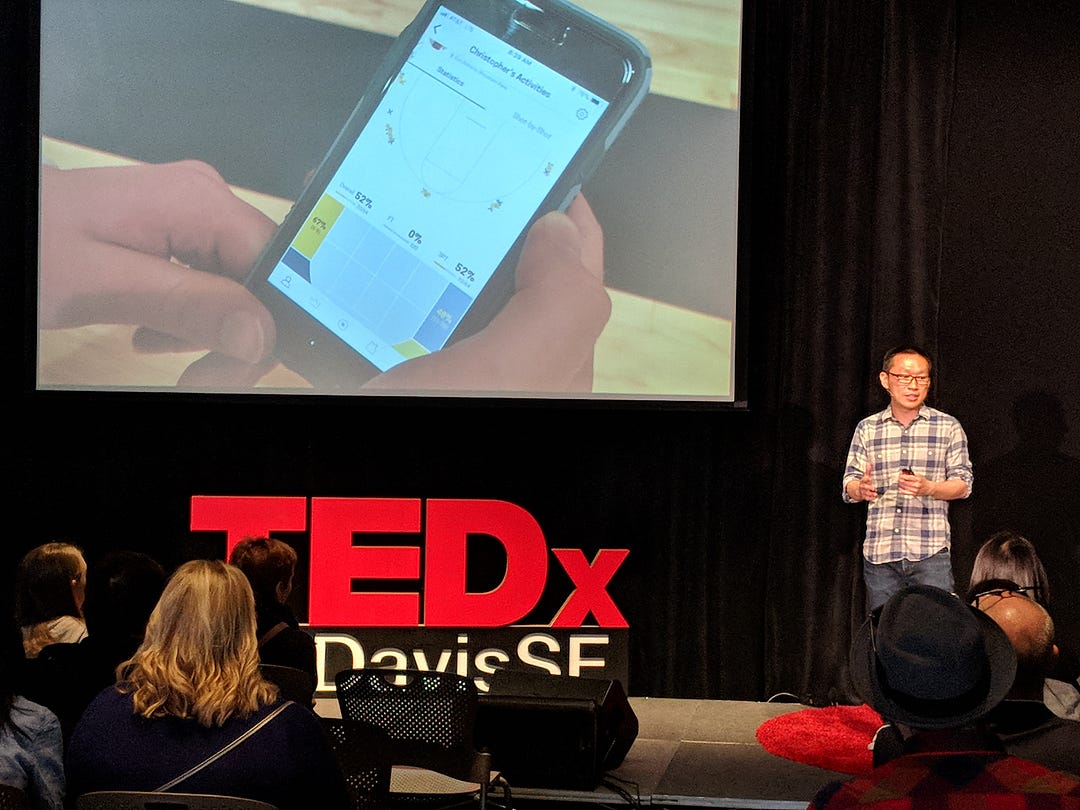
A snapshot of David’s brainchild at work.
- Idea number 15 came about when David realized basketball players often want to be able to show friends and family their game, after the game is over.
- “Like all good engineers, we broke the problem down into smaller problems that we broke down into even smaller problems, until we figured out where to begin.”
- With AI, we are able to turn a traditional team sport into a really global and connected experience. In a sense, we’re taking the “e” in “eSports” and applying it to a more traditional “sport”.
- People are connected through sports. We want to create a way for basketball players anywhere at any skill level to share their games with anybody. That is what I considered a slam dunk.
Antoine Hunter
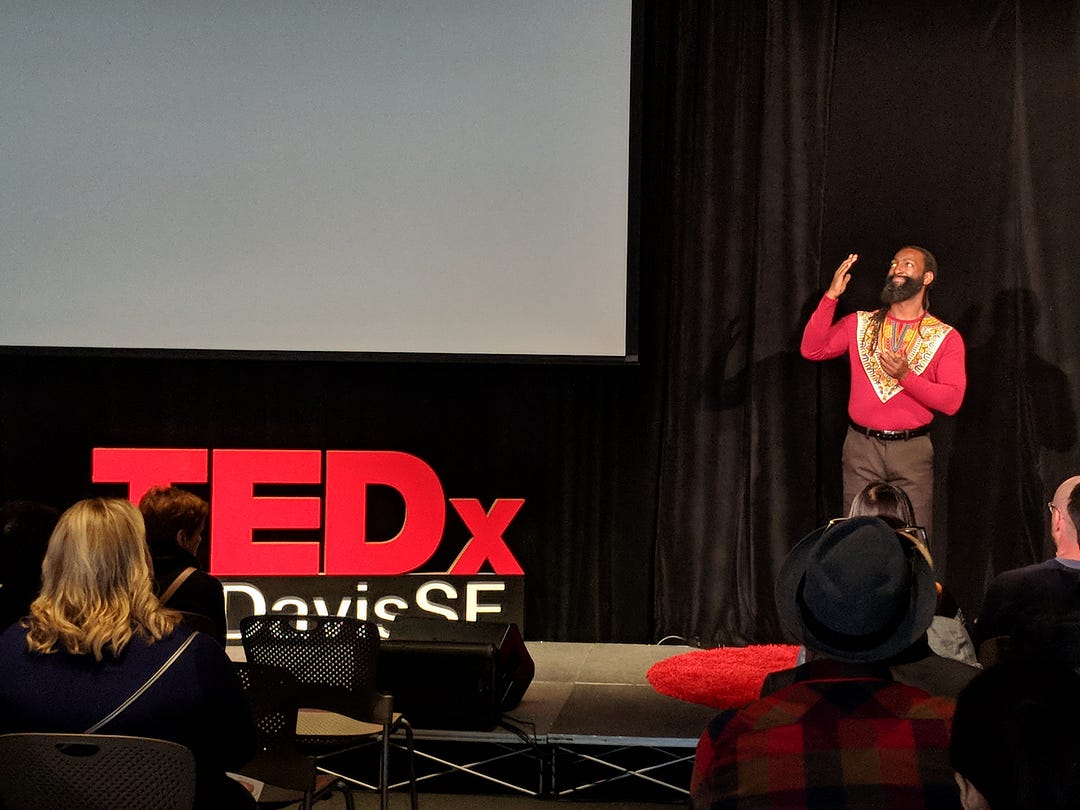
Antoine Hunter shares his story of not feeling understood growing up until he was able to “communicate” through his first solo dance.
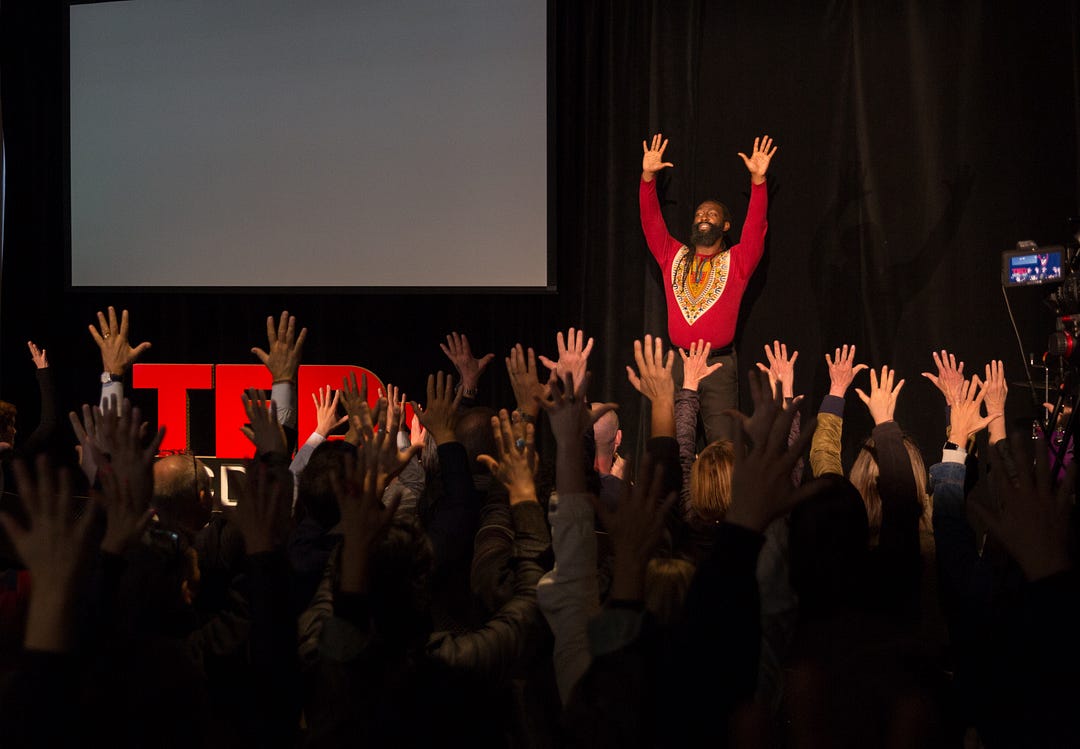
What is “I love mango” in the language of dance?
- I didn’t feel understood until I created my first solo and danced in front of people in high school. From that day forward, I went on to learn other “languages of dance” — like African, ballet, and so much more.
- How do deaf dancers dance without music? We use inner rhythms to connect with each other and to the music even though we can’t hear it or feel it most of the time.
- I use our “language” the way Deaf people realistically express their culture. This is simply a new GENRE of dance: American Sign Language (ASL) Dance. I choreographed an ASL dance that made everyone smile, I would love to teach you a bit….now everyone knows what I mean by move like Mango. It means to move with love.
- Being deaf is just a different facet of human culture.
Luke Brady
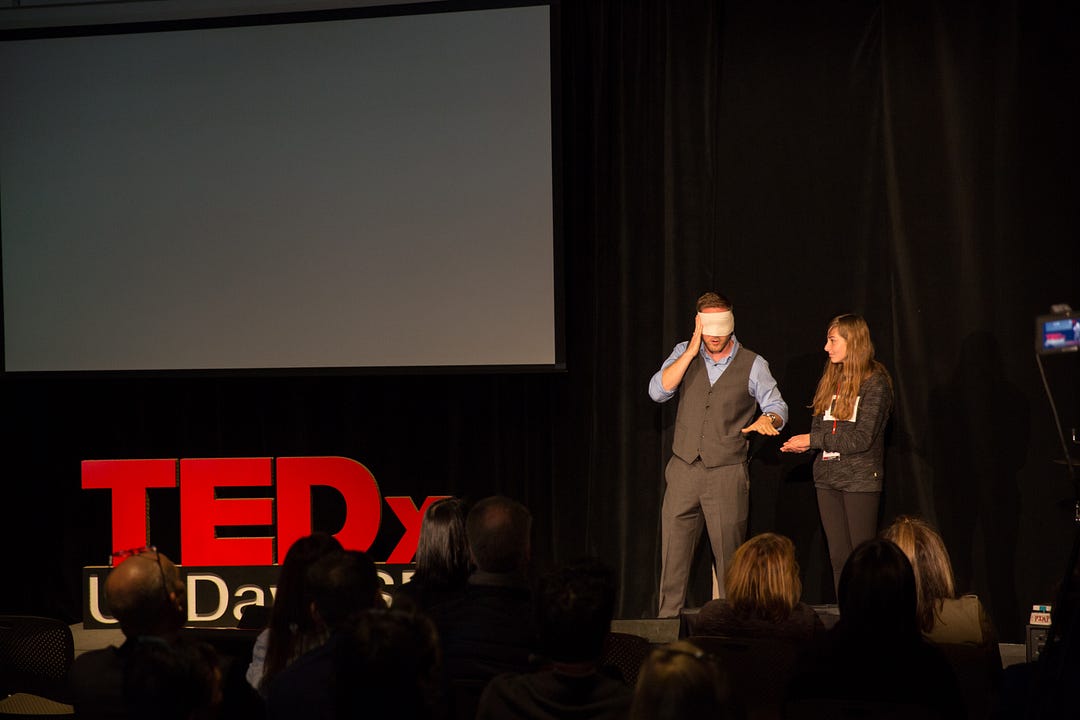
Luke Brady demonstrating shifting your attention changes how you see things to an attendee on stage.
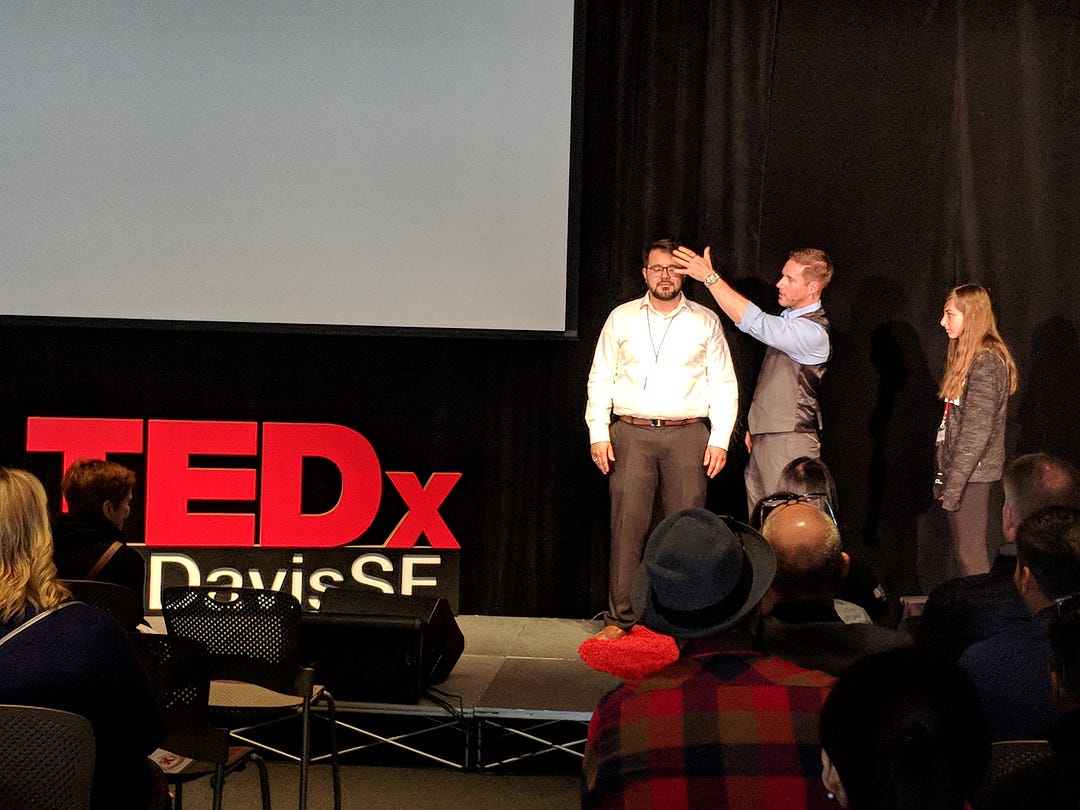
Be sure to watch Luke’s video on attention and perception when it comes out to see what he did on stage. Was it magic?
- Shifting our attention can completely change our world.
- Ask yourself, where haven’t you put your attention yet that will change the world around you?
Dante Love
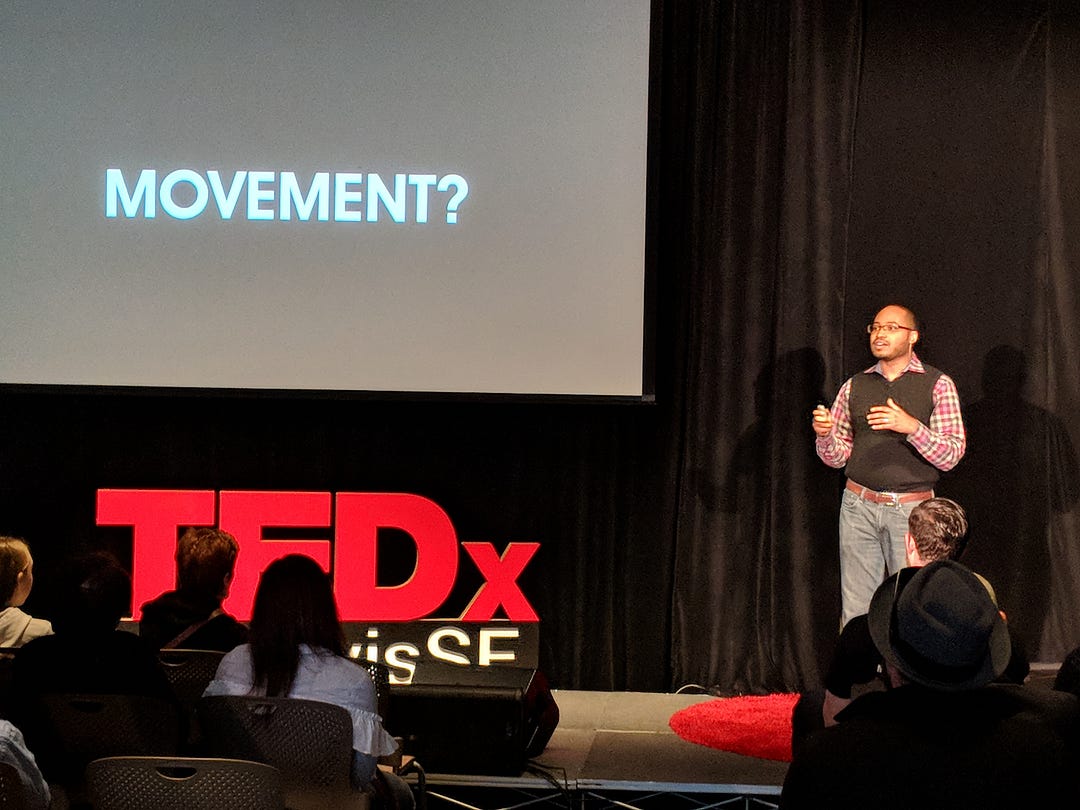
Dante Love on the movement of house sizes and prices.
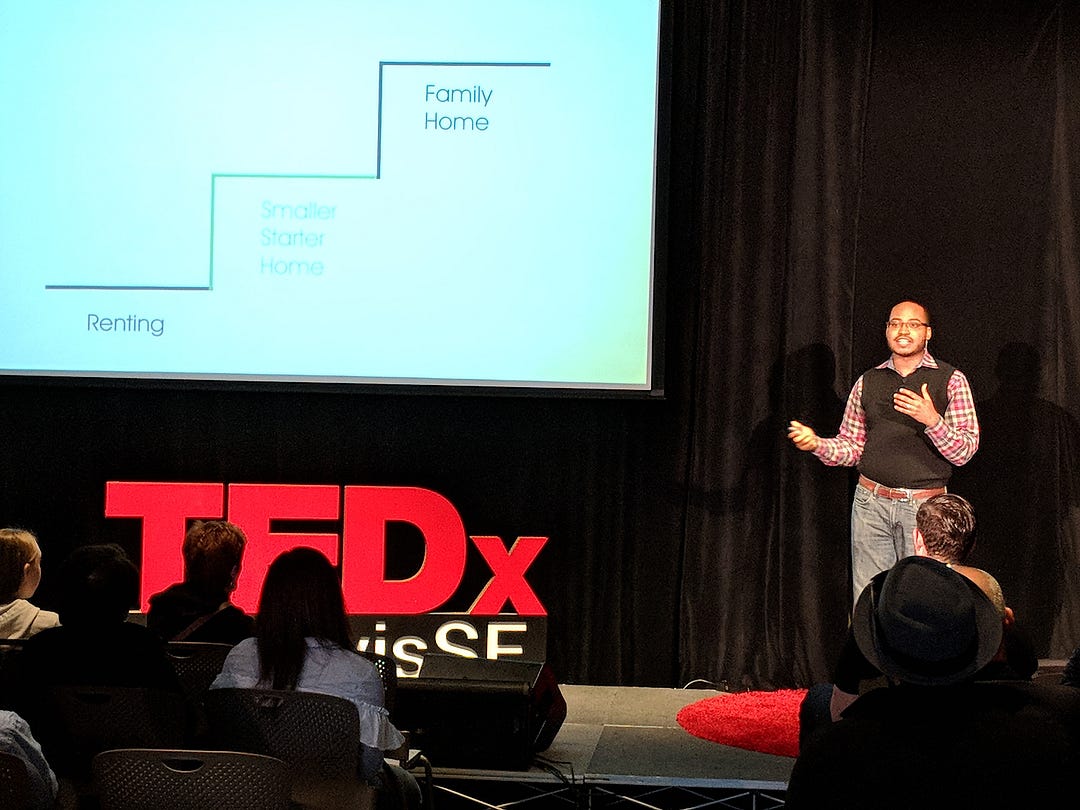
The style, form, location, and size of housing are unsustainable but smarter, smaller homes could be the solution.
- If the American Dream was built on socio-economic movement, the human dream was most certainly built on evolution and our uncanny ability to survive and adapt.
- The housing prices in the Bay Area have skyrocketed. At the rate that it has increased, what would our next generation do? What happens to upward mobility when an entire generation loses its ability to move?
- While it almost never makes sense to build fewer houses when you factor in the overhead and interest rate, smaller homes could be the solution to the outrageous housing market where most of us cannot afford a home.
- The story of a house 50 years from now could very well be one that features high ceiling, modern design, and takes up just about 600 sq. ft. — as strange as it sounds, it’s both the most expensive home per square foot and the cheapest new construction home in terms of total cost in area.
Luke Guidici
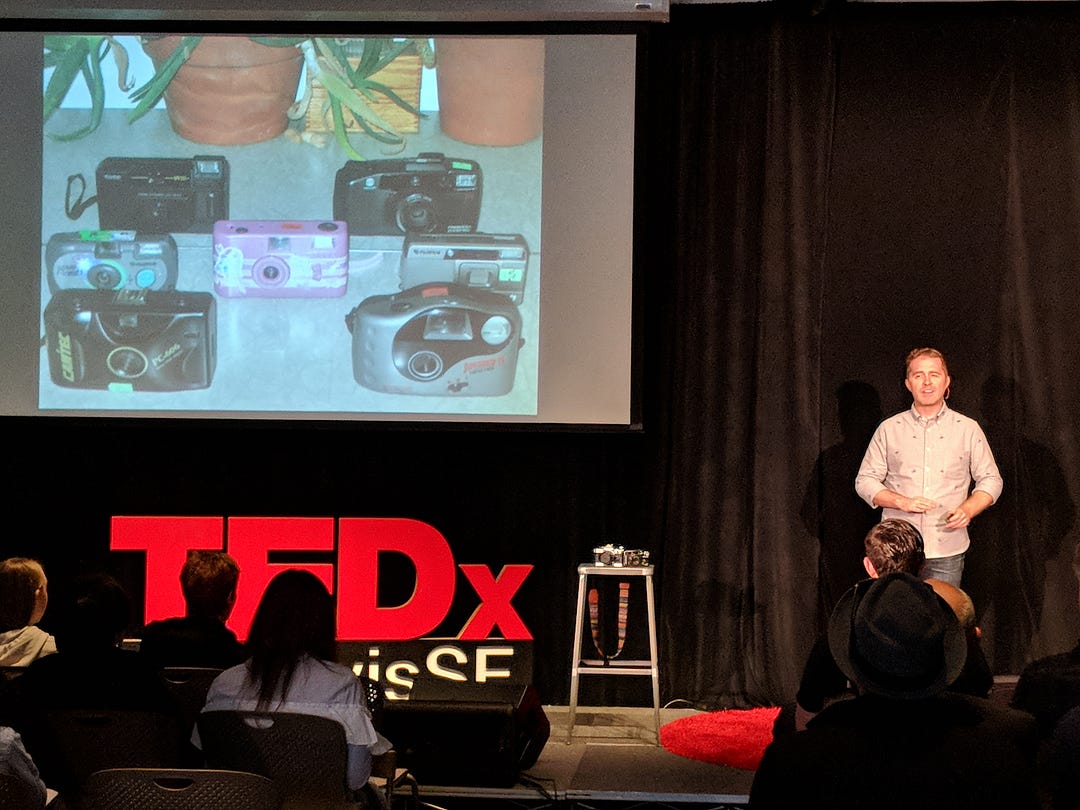
Luke Guidici on the forgotten film rolls inside abandoned cameras and what he did to tell his versions of these forgotten stories.
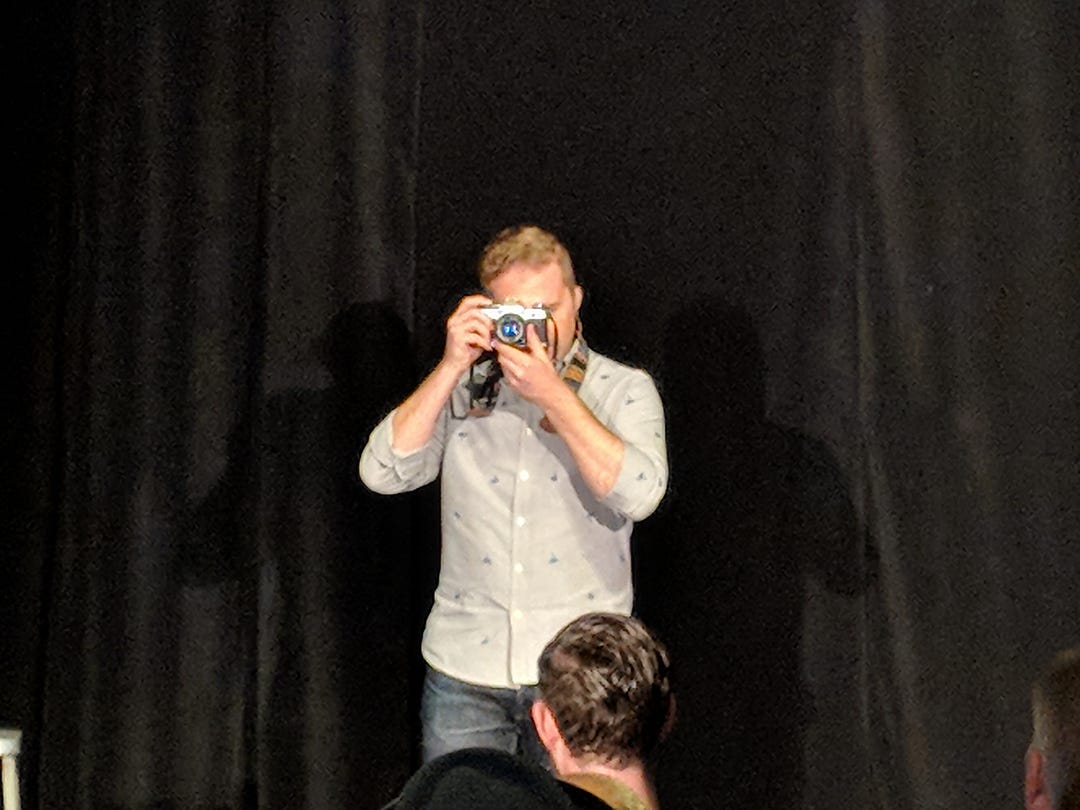
“There’s a level of intention required to take a photo on film that is largely missing from digital photography. And that means the very way we created our memories was changing.”
- Film photography requires you to be purposeful with both capturing a moment and sharing it. It requires intention.
- By placing attention on the photos I hoped I could restore the intention of that initial moment. By completing the journey from a moment that was captured to a moment that was shared, I hoped that I could redeem those memories.
- Taking pictures with my grandfather’s camera forces me to slow down. I have to check the lighting and aperture, I have to be intentional.
- If we pay attention to intention, we can see the beauty all around us.
Ji Seon Song
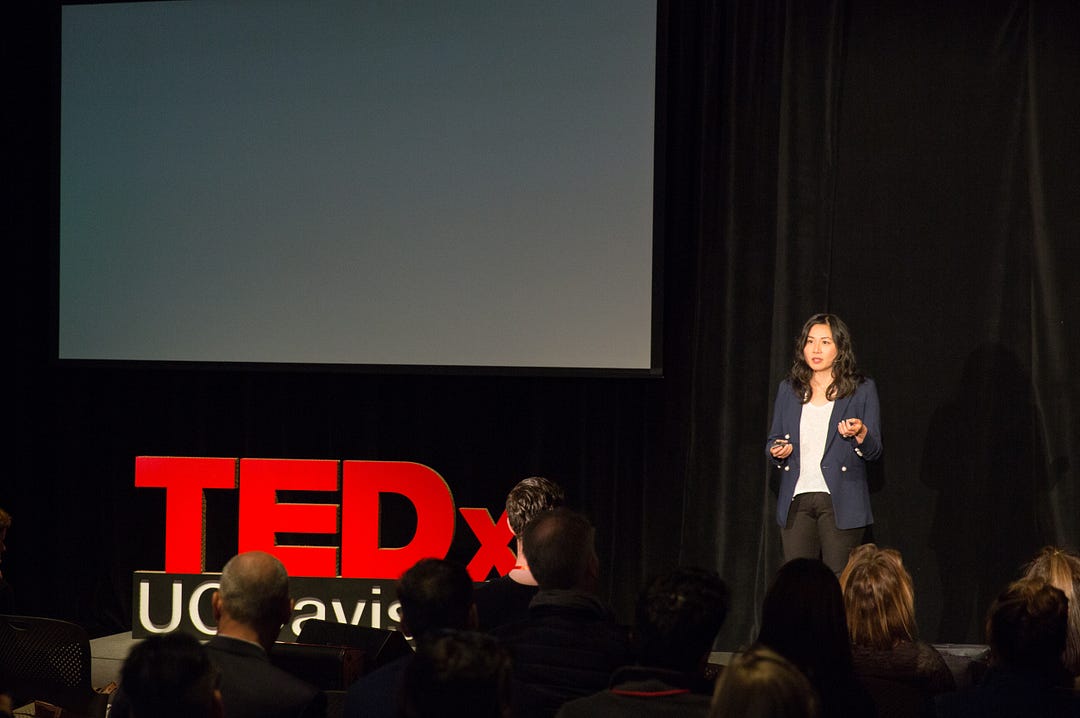
Ji Seon Song on the importance of physical movements for children.
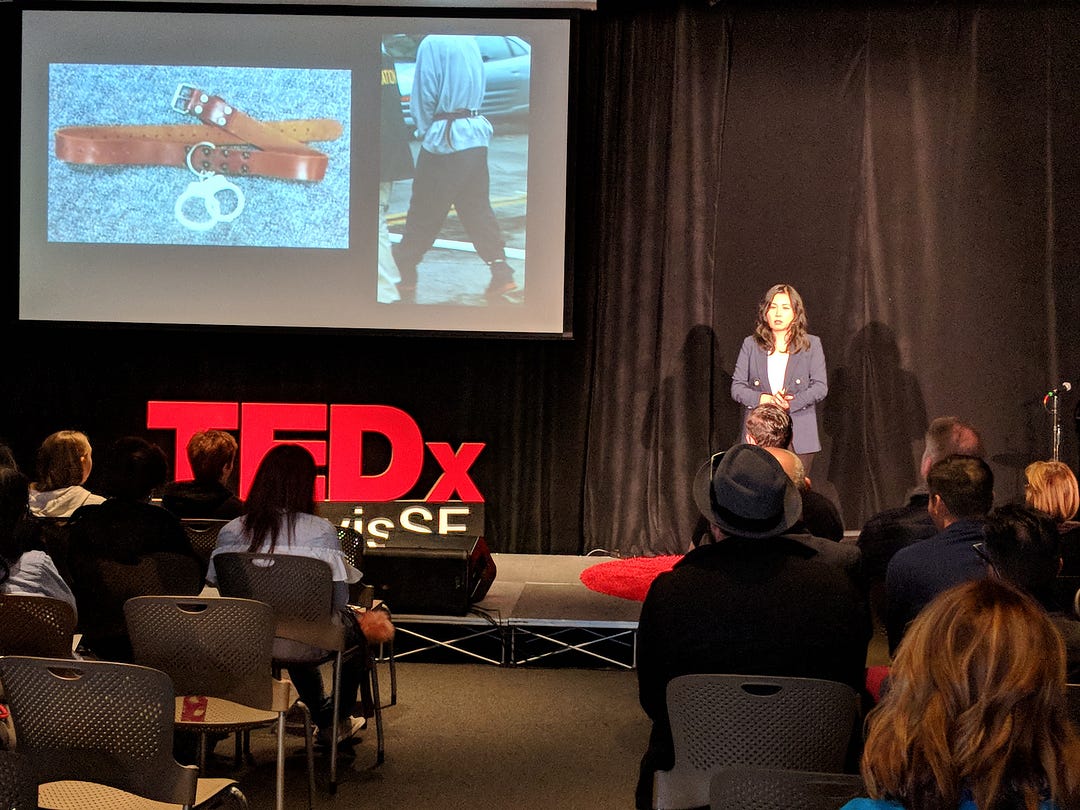
“I hope that you don’t continue to think of these kids as “others,” but as our own children.”
- Ankle bracelet, shackles, required to ask permission to go to church…are we really ok with the way we treat our children in the juvenile Justice system?
- we need to do better with kids. We need to give them mentors. Kids don’t know the boundaries, they’re going through changes that will only happen once. So there’s Hope even for the children who are locked up… we need to get them connected to things that make them tick.
- There is power in telling people’s stories. There is power in feeling empathy and finding commonality with those who seem so different from us. And in finding this commonality amongst us — the truth that MOVEMENT, particularly in childhood, makes us better and makes us whole.
The Team and Some Candids
The 2018 Movement event was brought to life by a team of GSM volunteers and generous sponsors. TEDxUCDavisSF founder and teams from previous years also provided guidance and support throughout the planning process and on the day of the event.
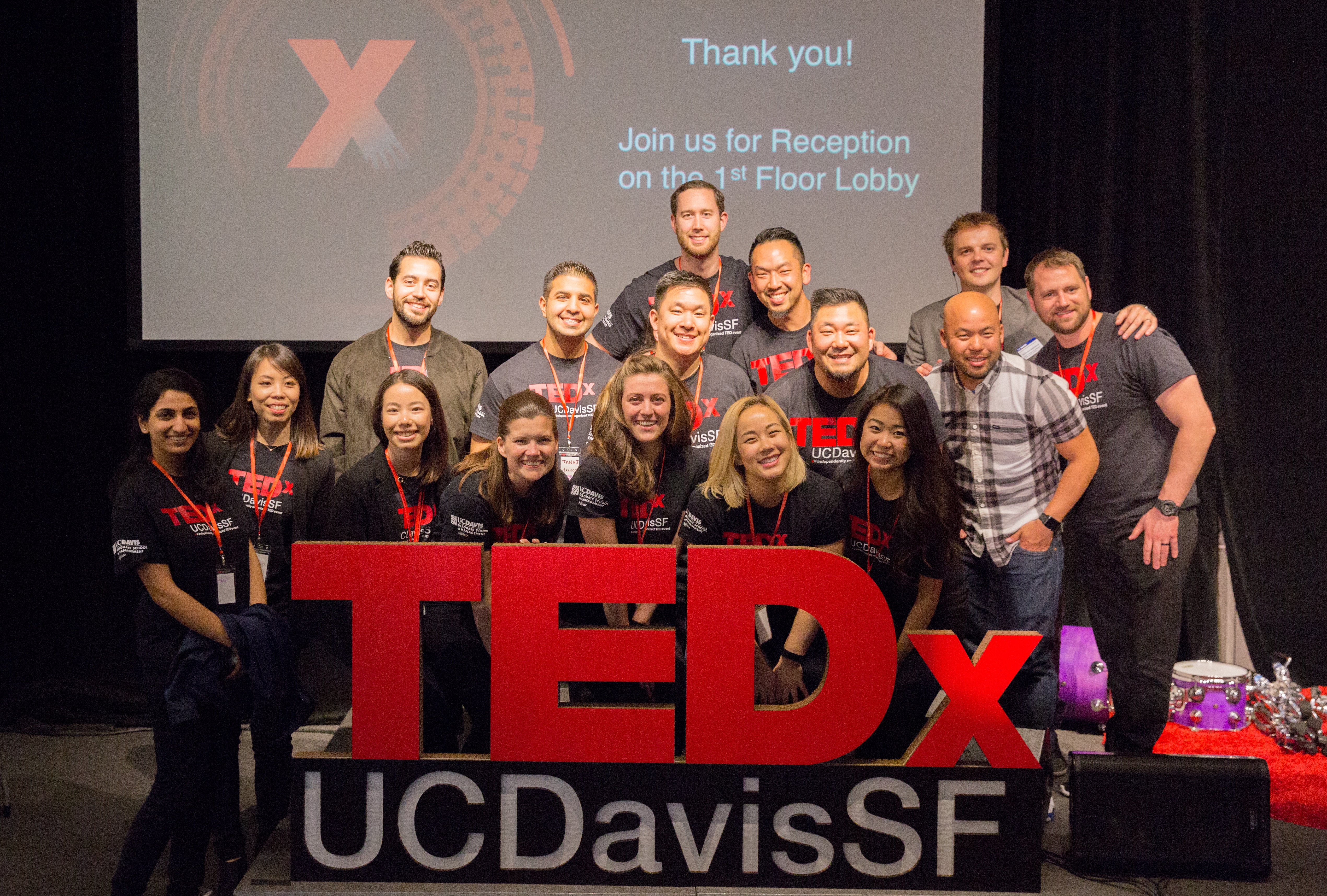
2018 team and TEDxUCDavisSF founder Jeremiah Kim. Special thanks to Michelle Yoo (not in picture), 2017 co-organizer for showing support in the audience.
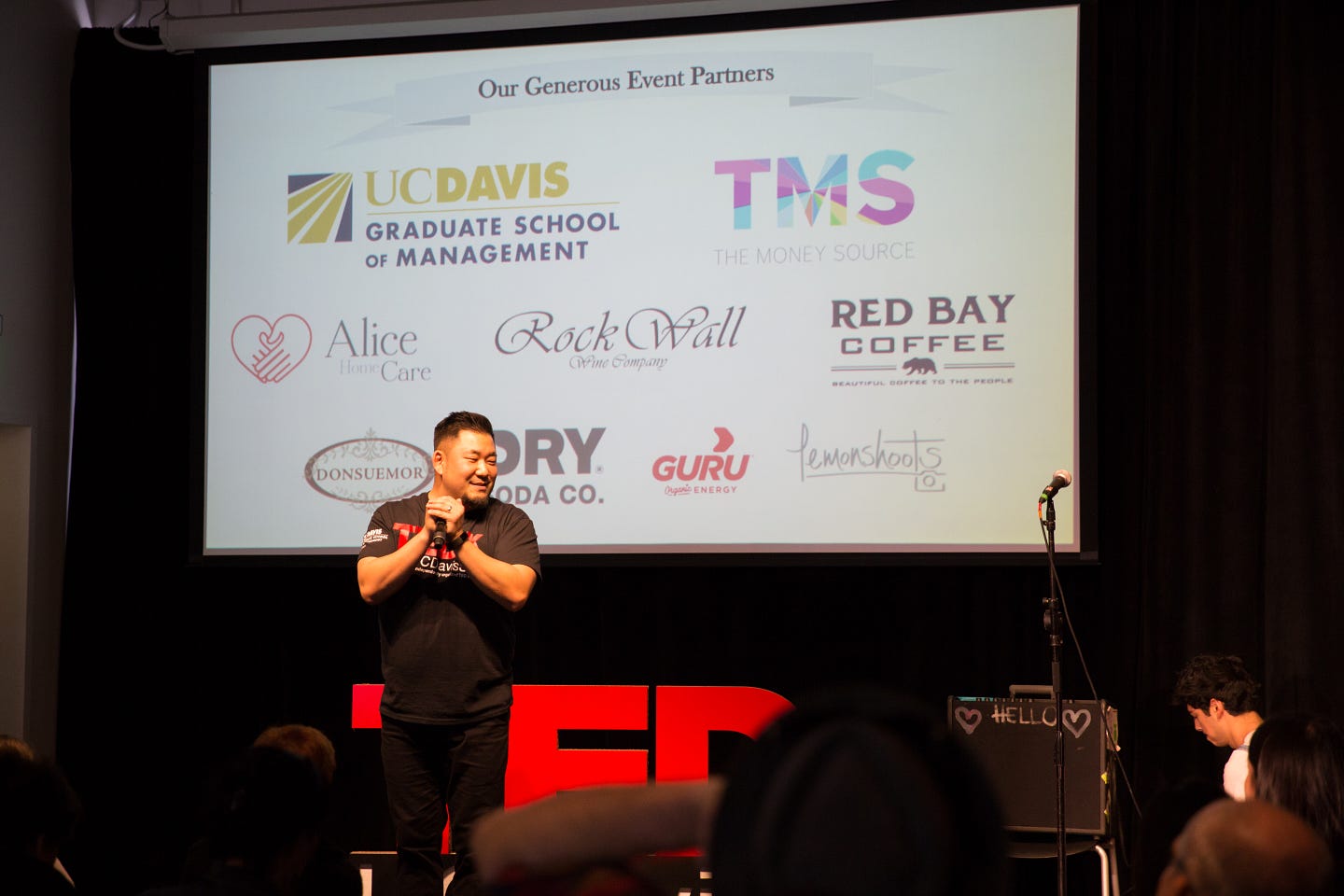
Thank you to our sponsors and volunteers including interpreter and photographer who supported our movement to share ideas worth spreading with the San Francisco Bay Area community.
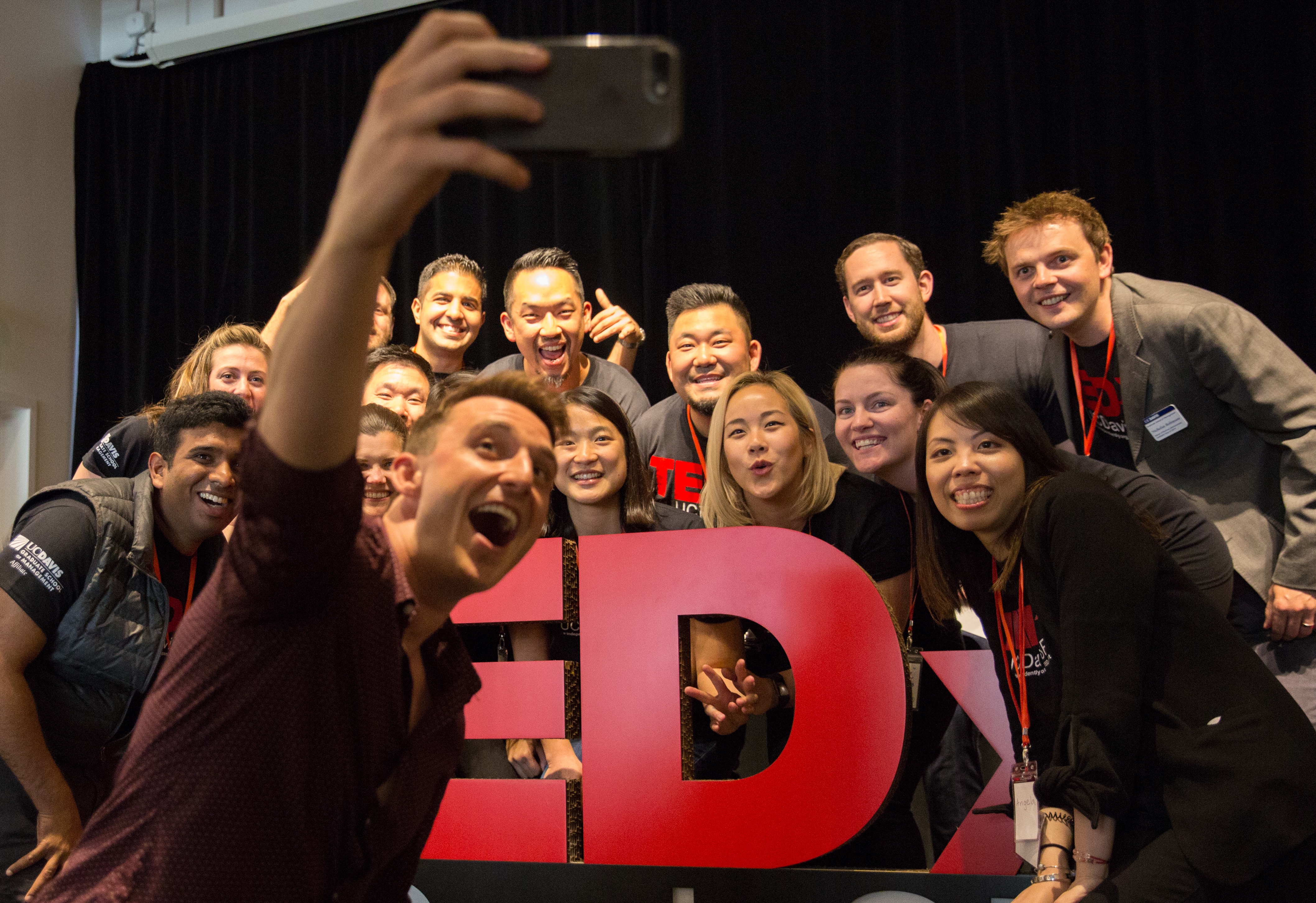
Who doesn’t want to take a picture with the red TEDx sign?
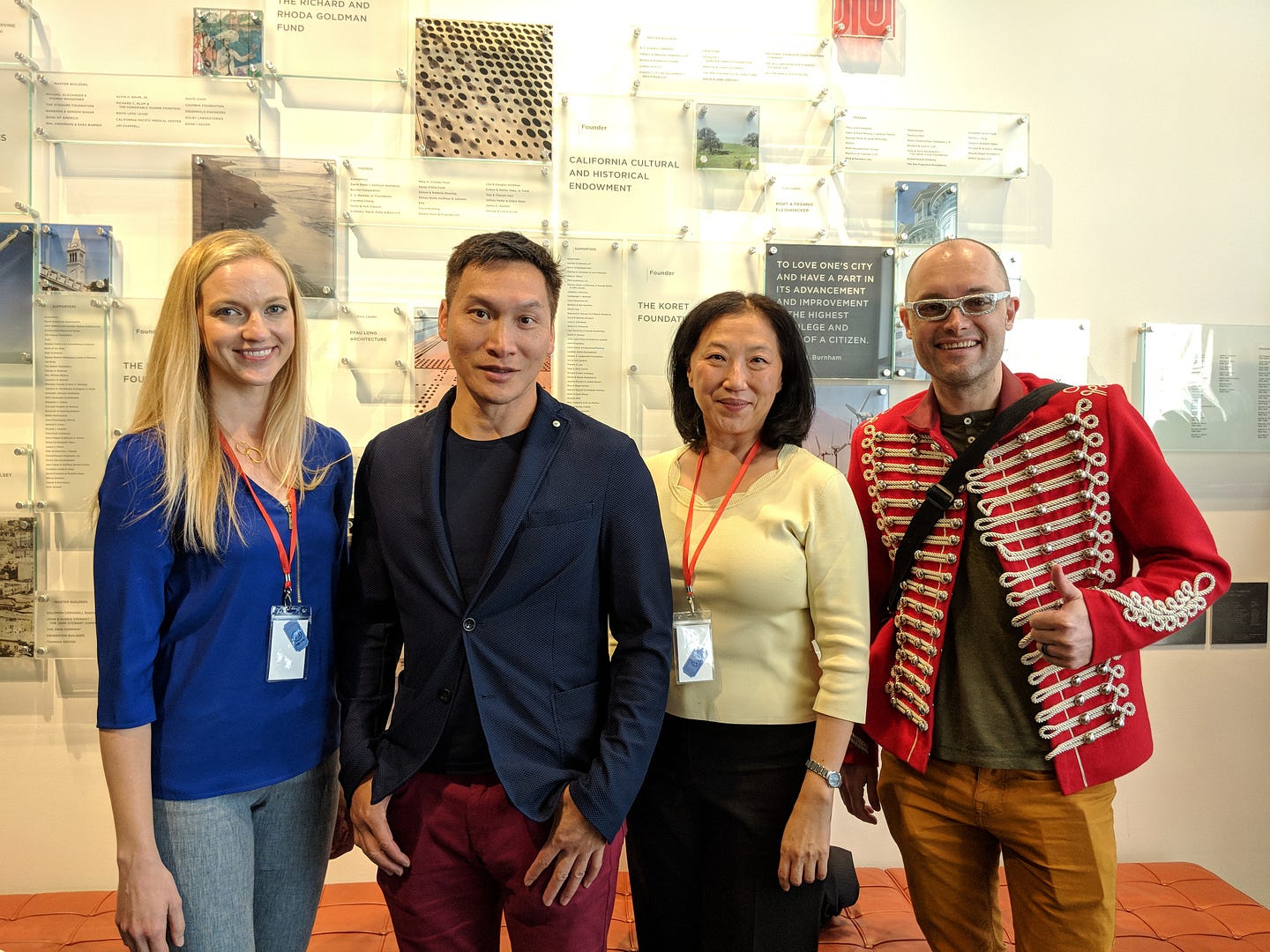
Kristin Fracchia, Eddy Zheng, Gina Dokko, and Sean Montgomery after speaking on stage.
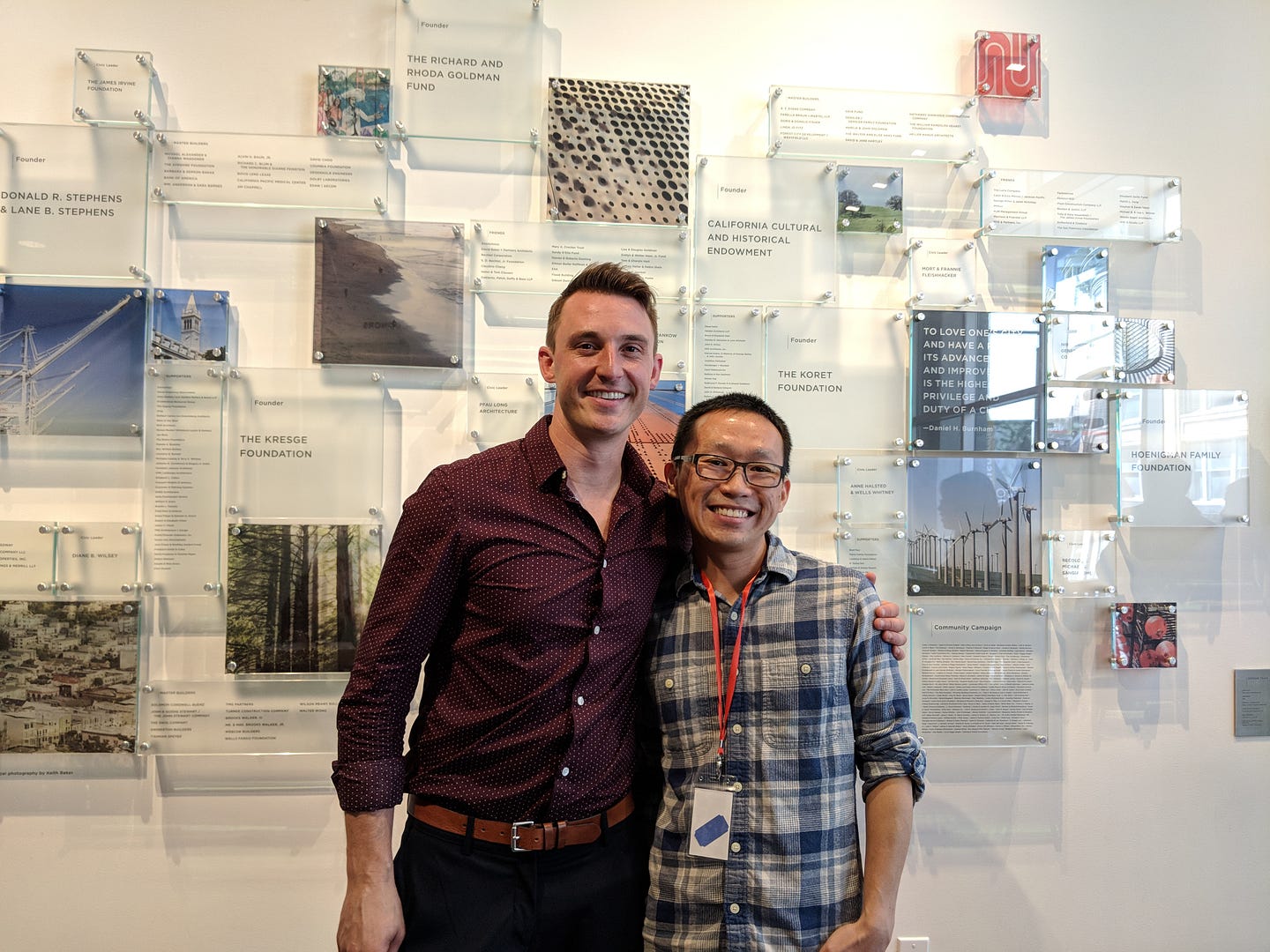
Alex Weber and David Lee after giving their talks.
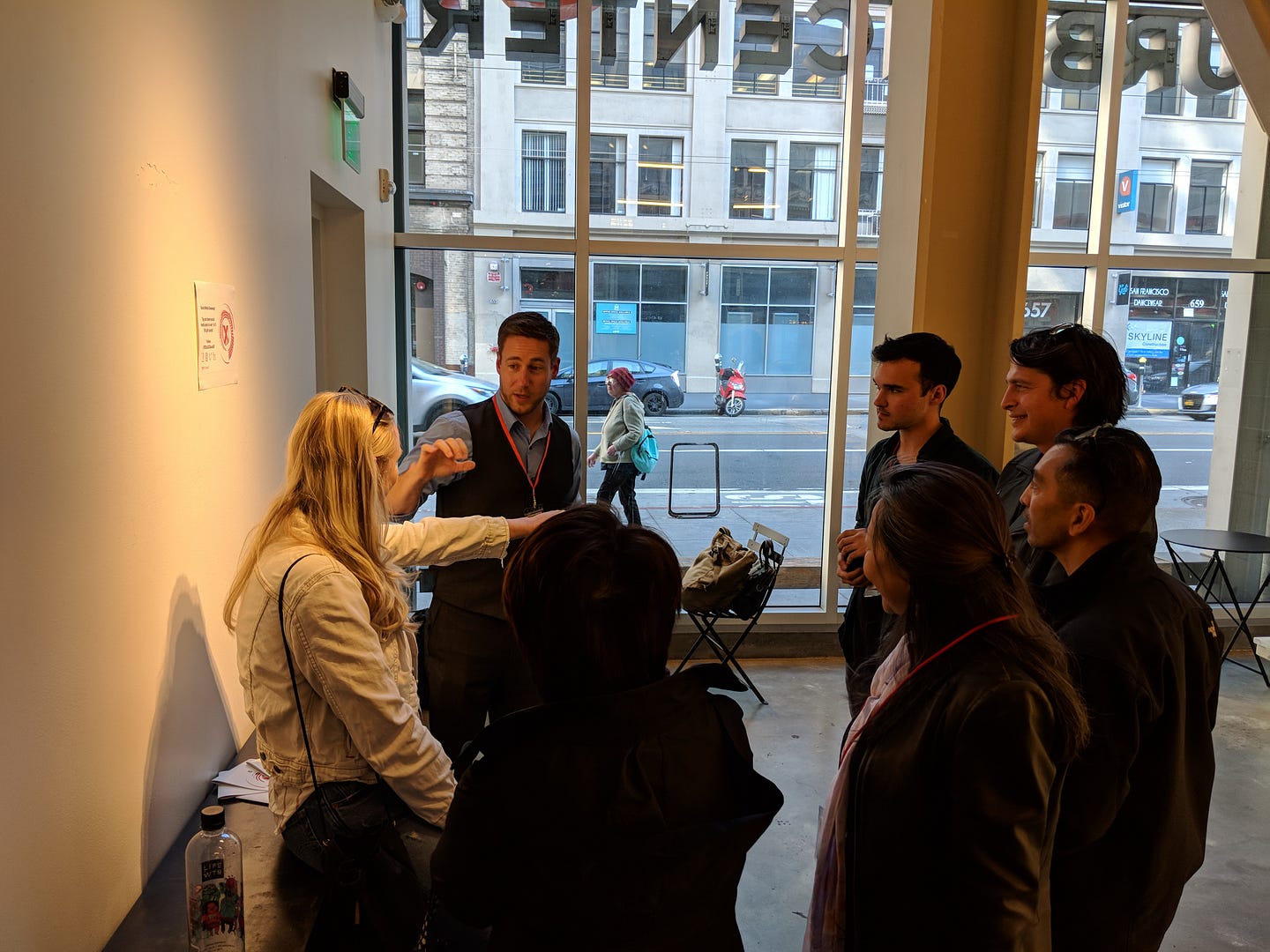
Luke Brady explaining his performance to the attendees at the reception.
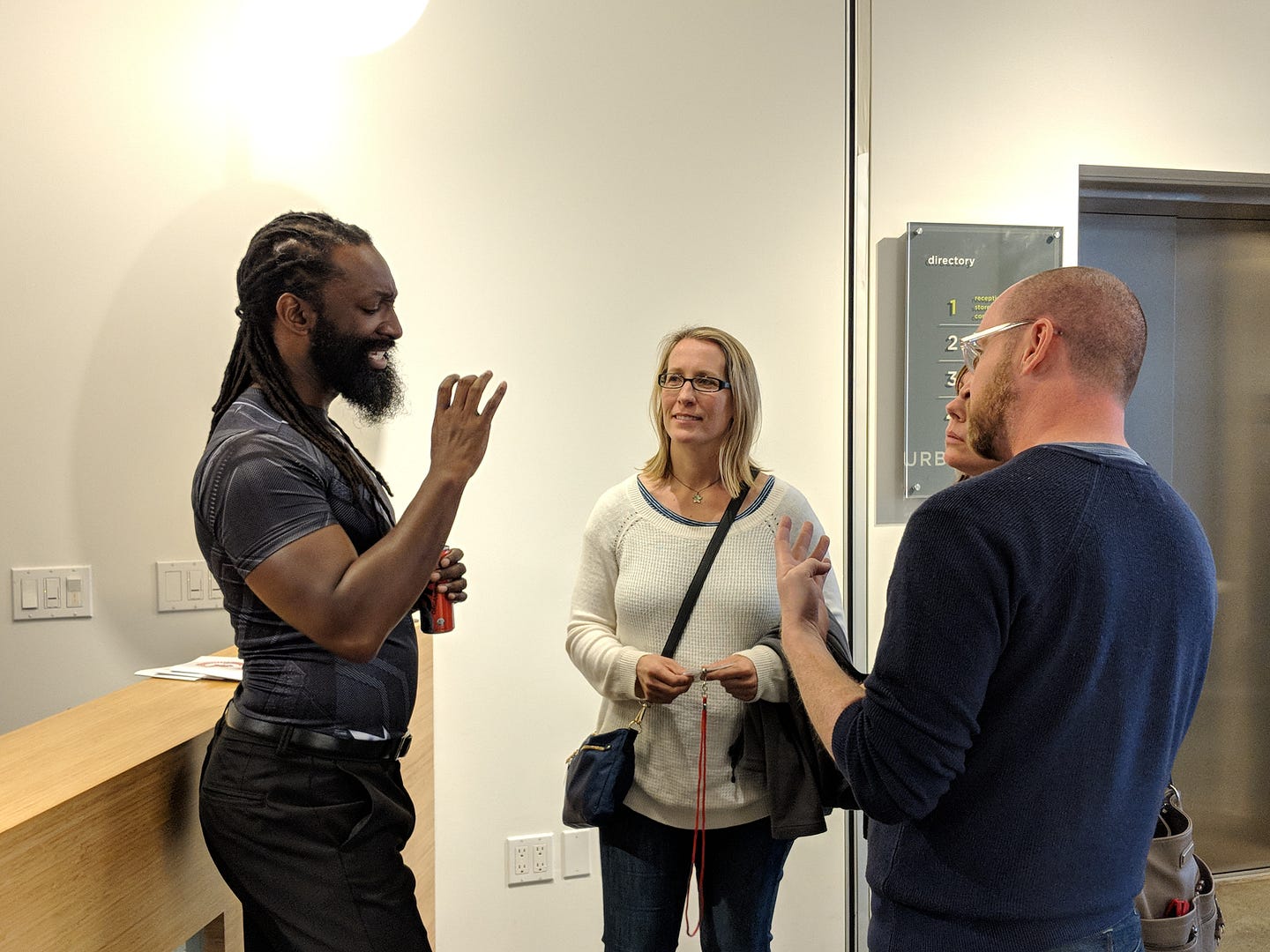
Antoine Hunter meeting the attendees with an interpreter.
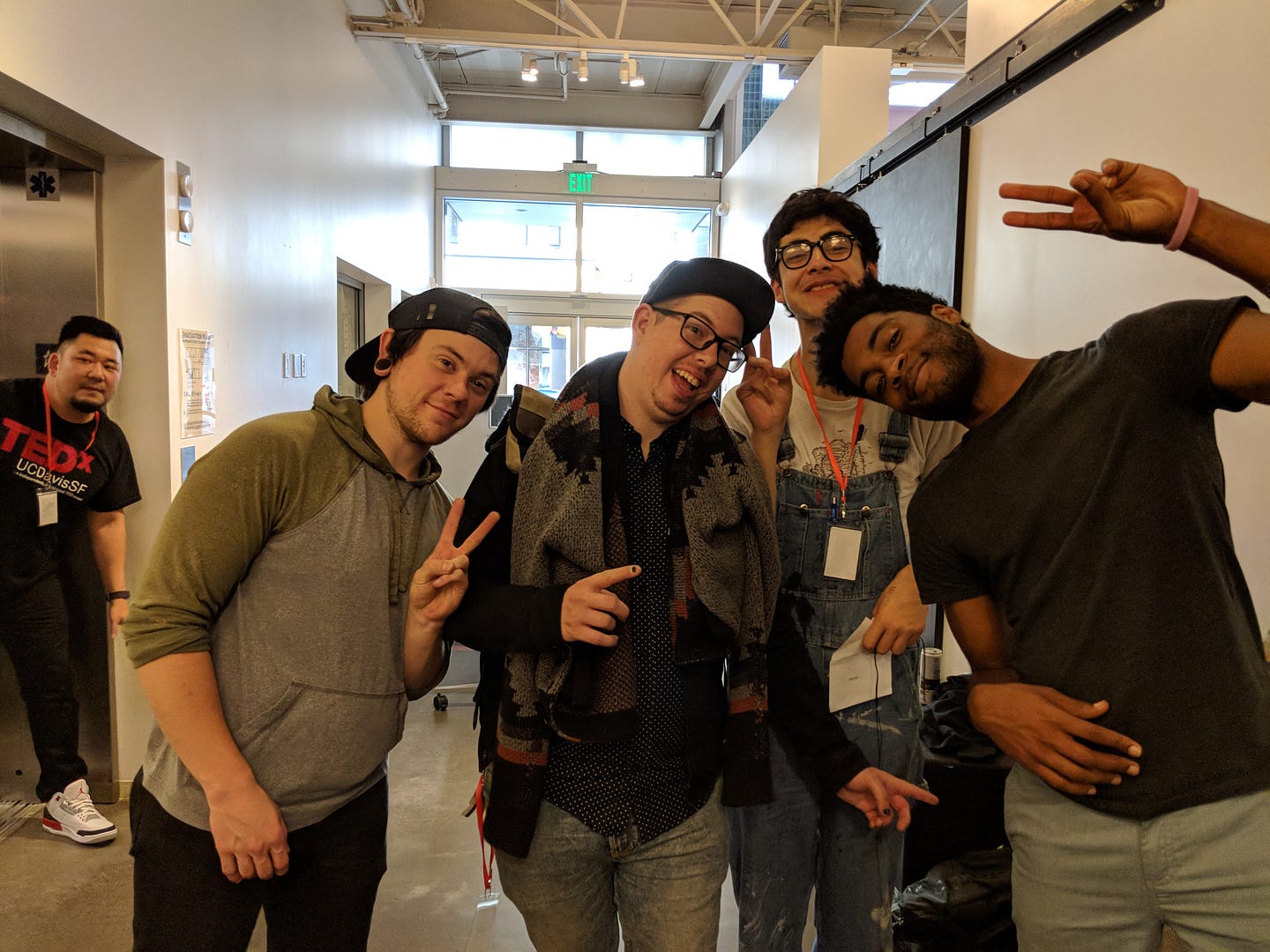
The Unlikely Heroes having a playful moment at the reception.
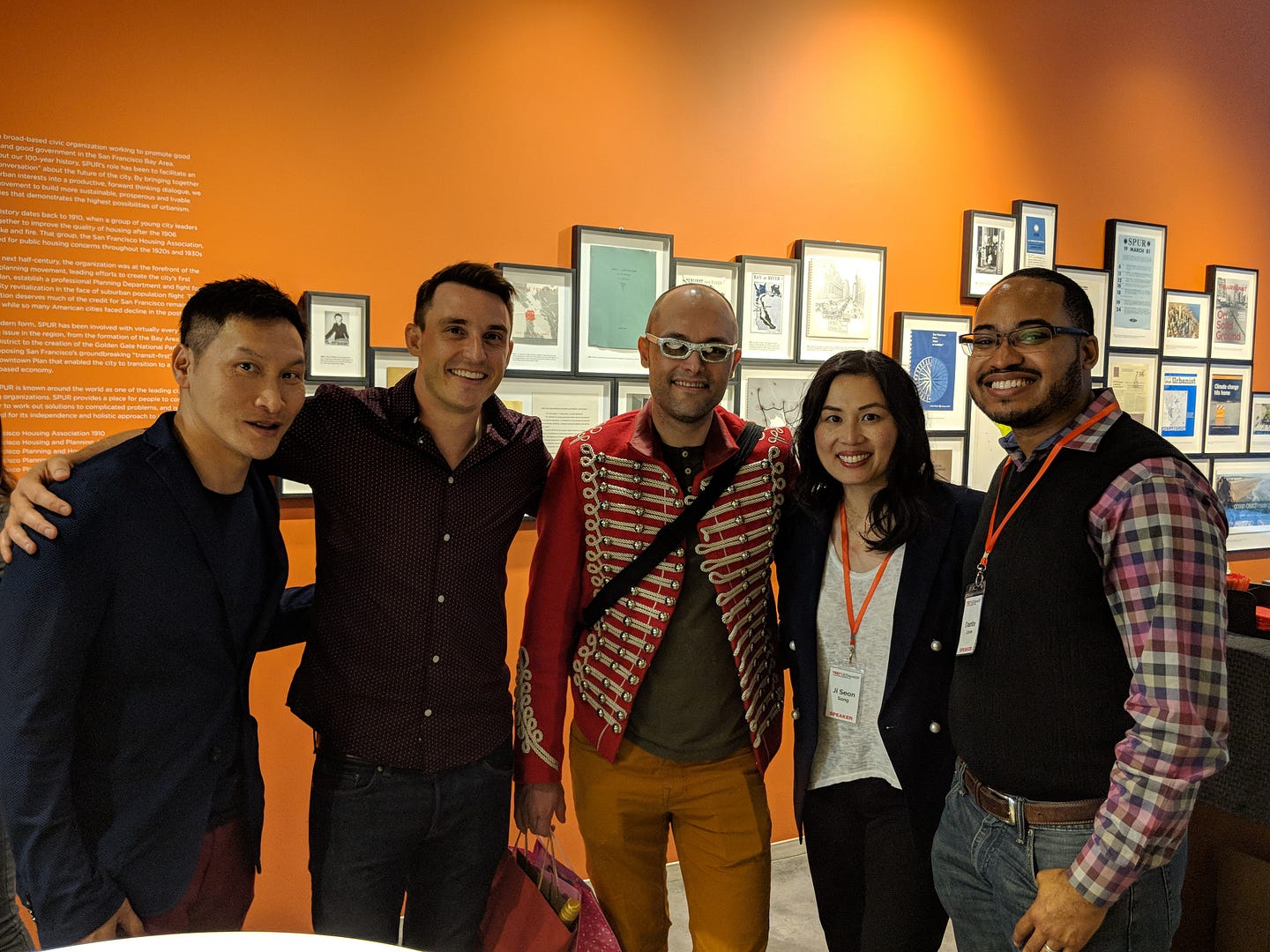
Eddy Zheng, Alex Weber, Sean Montgomery, Ji Seon Song, and Dante Love at the reception.
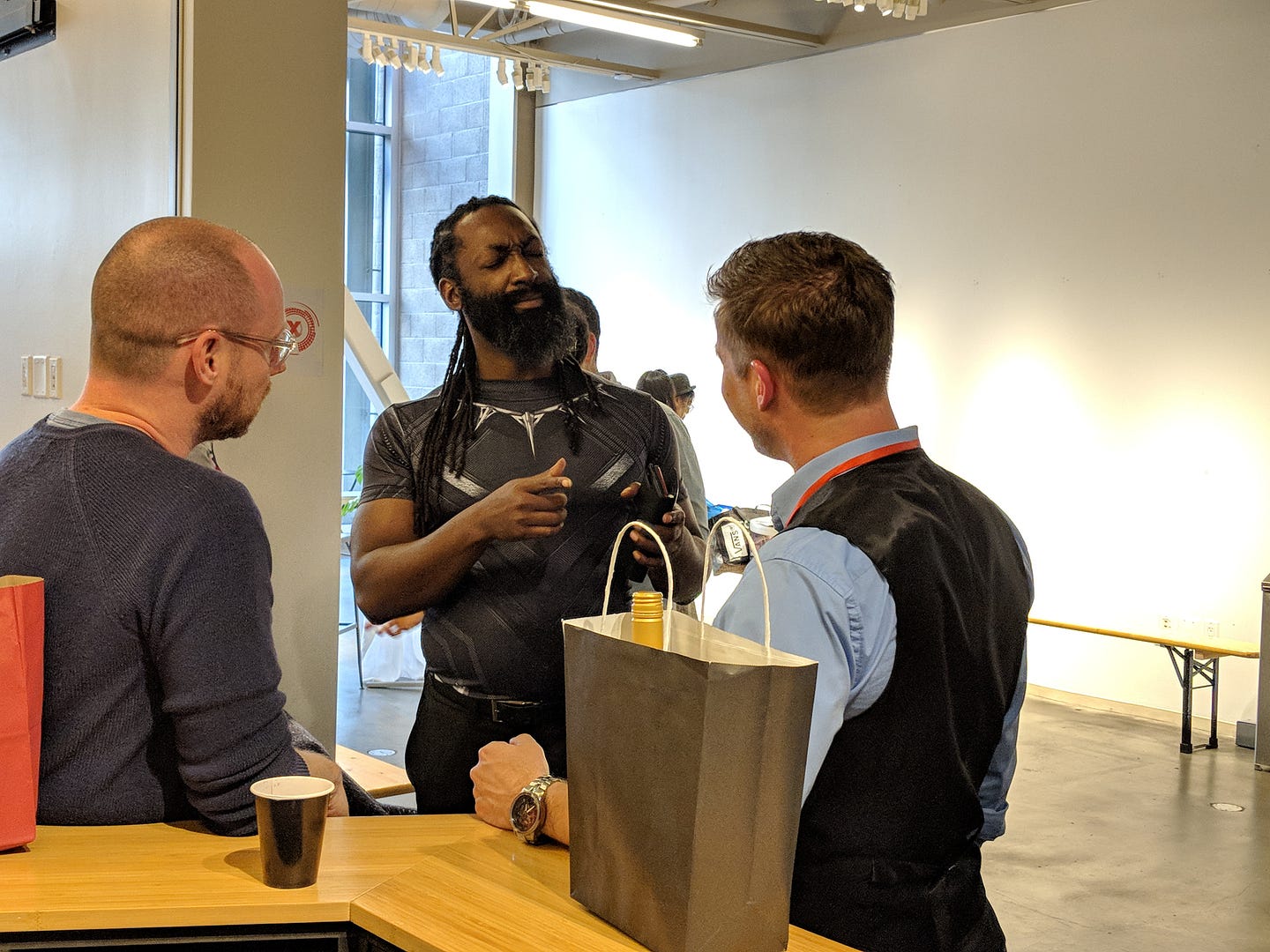
Antoine Hunter and Luke Brady after their performances.
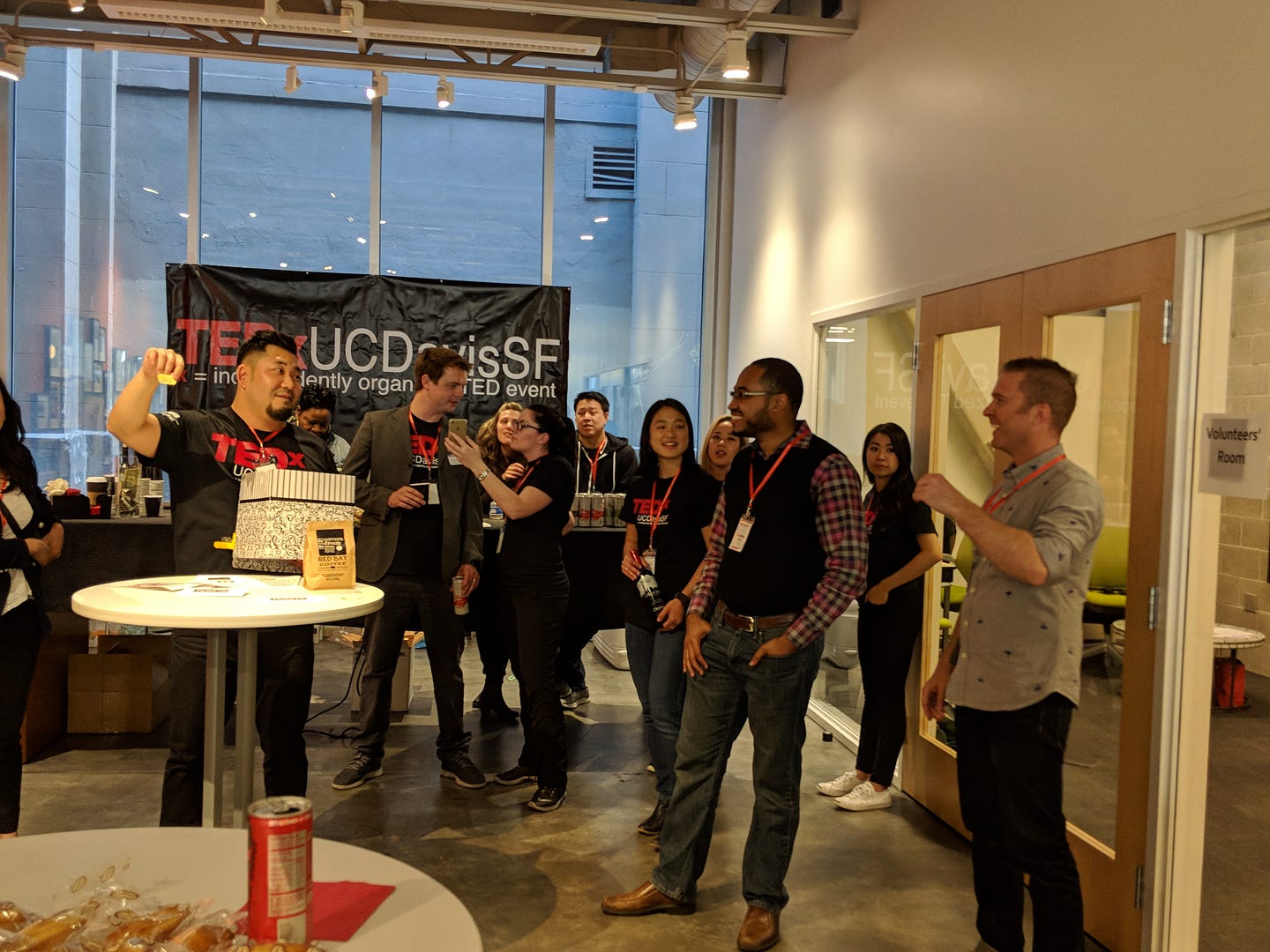
Raffle fun with the speakers and attendees.
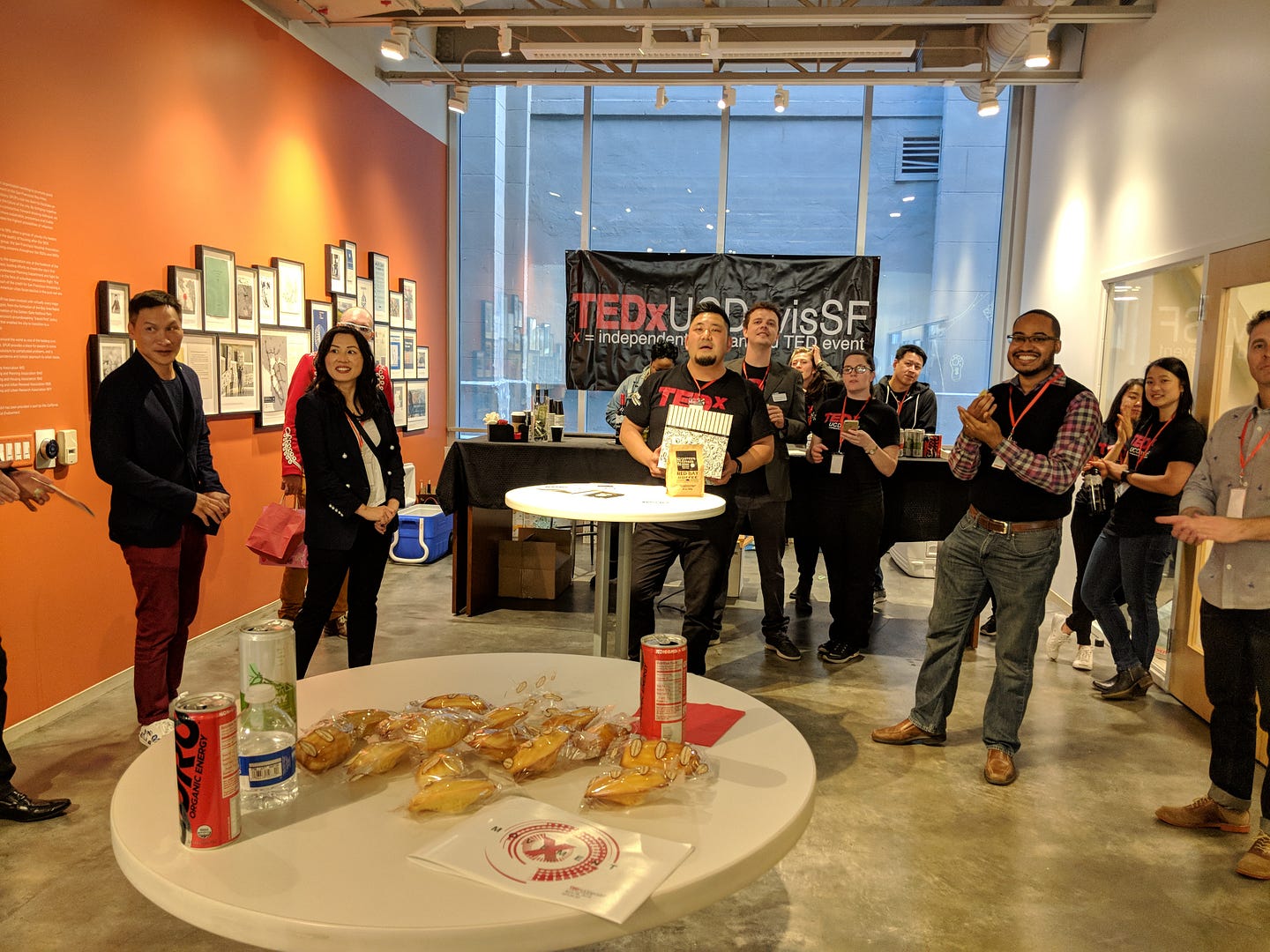
All looking for the lucky winner who won two prizes.
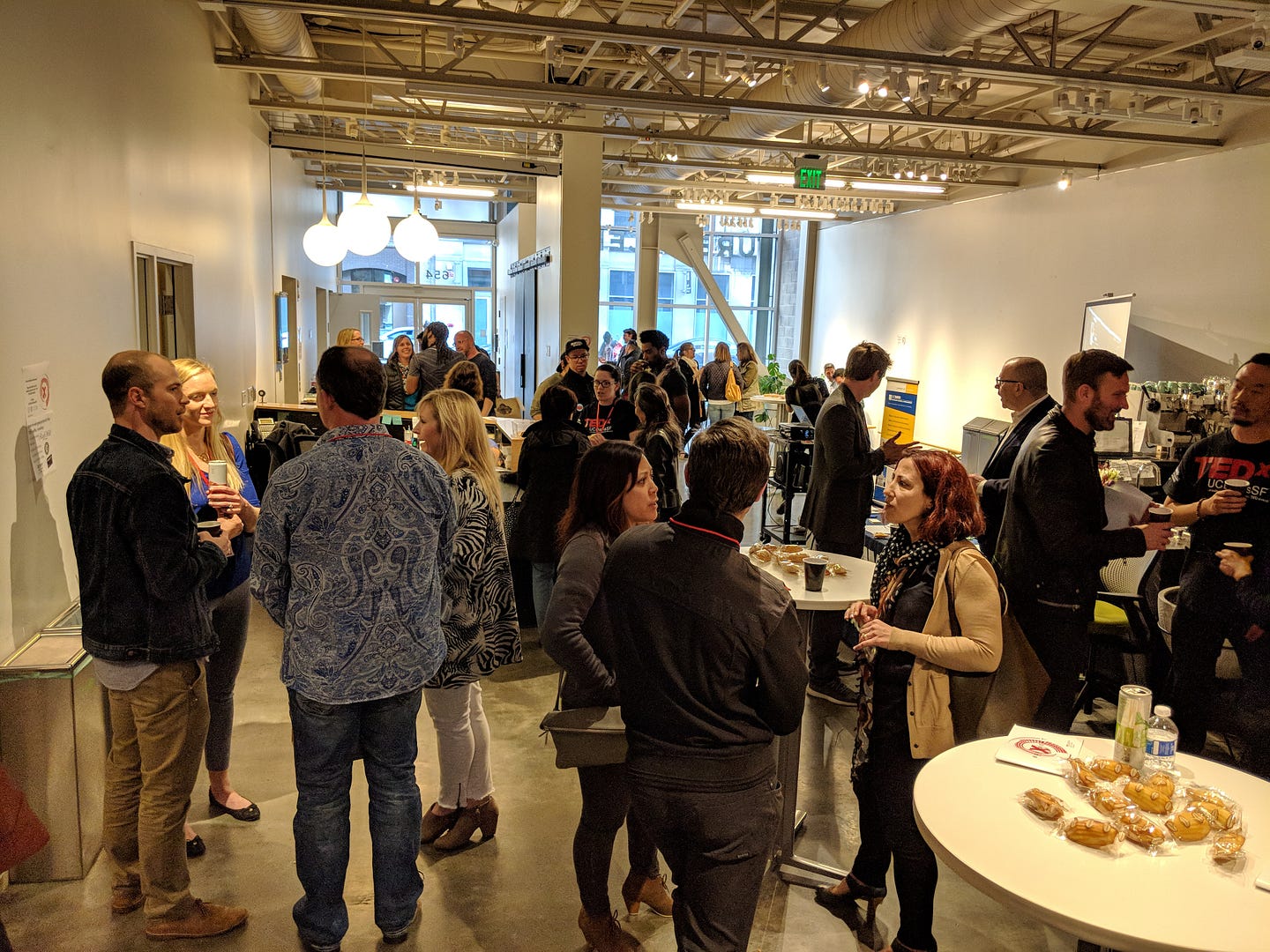
Attendees and speakers got a chance to meet and mingle at the post-event reception.
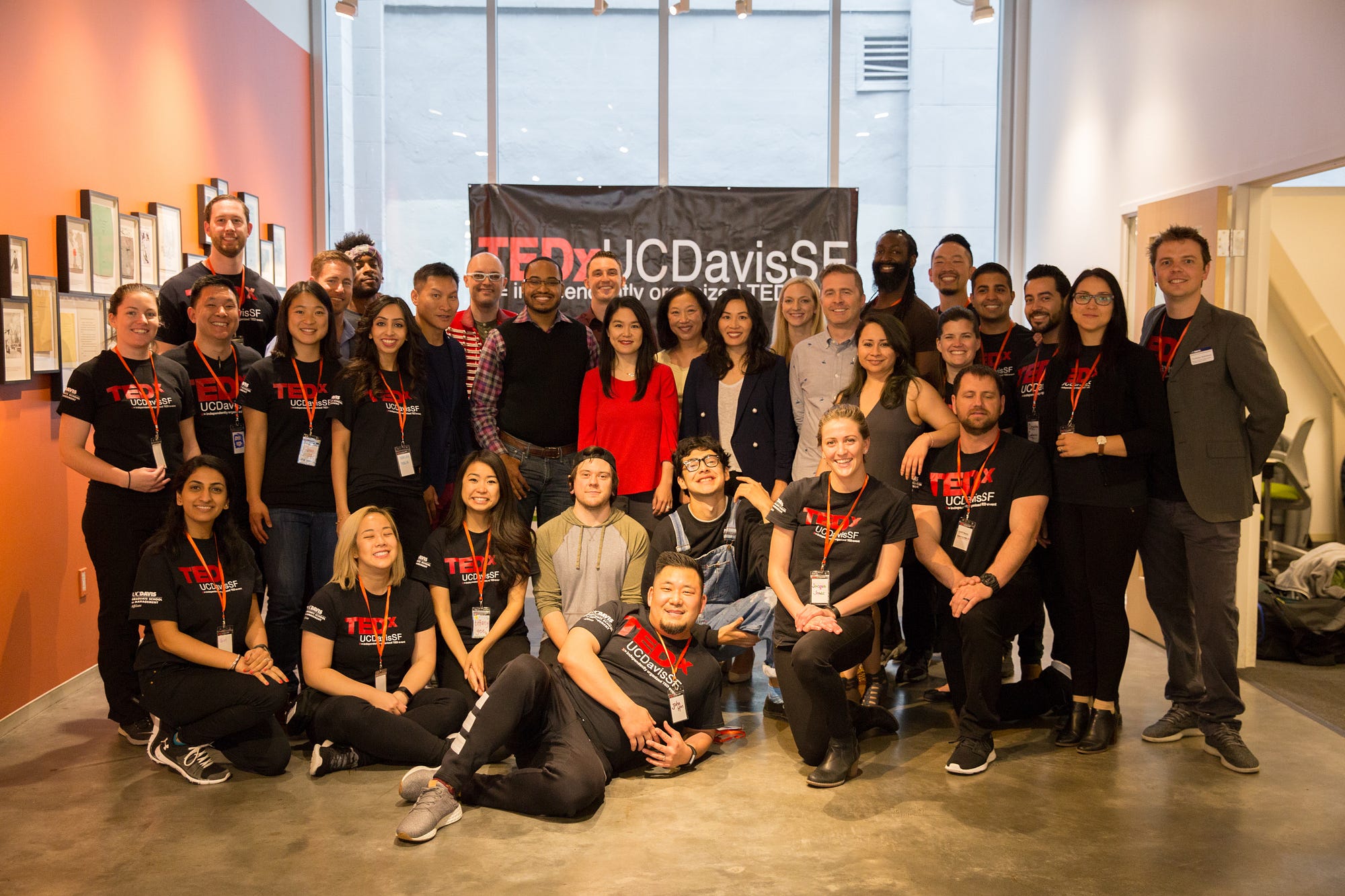
2018 Movement speakers, performers, volunteers, and team.
Official videos of all talks and performances will be posted on the website in the coming weeks so be sure to check back. We will be sharing more candid pictures from the event in the next few days for those who are curious! Stay tuned!

Leave a Reply